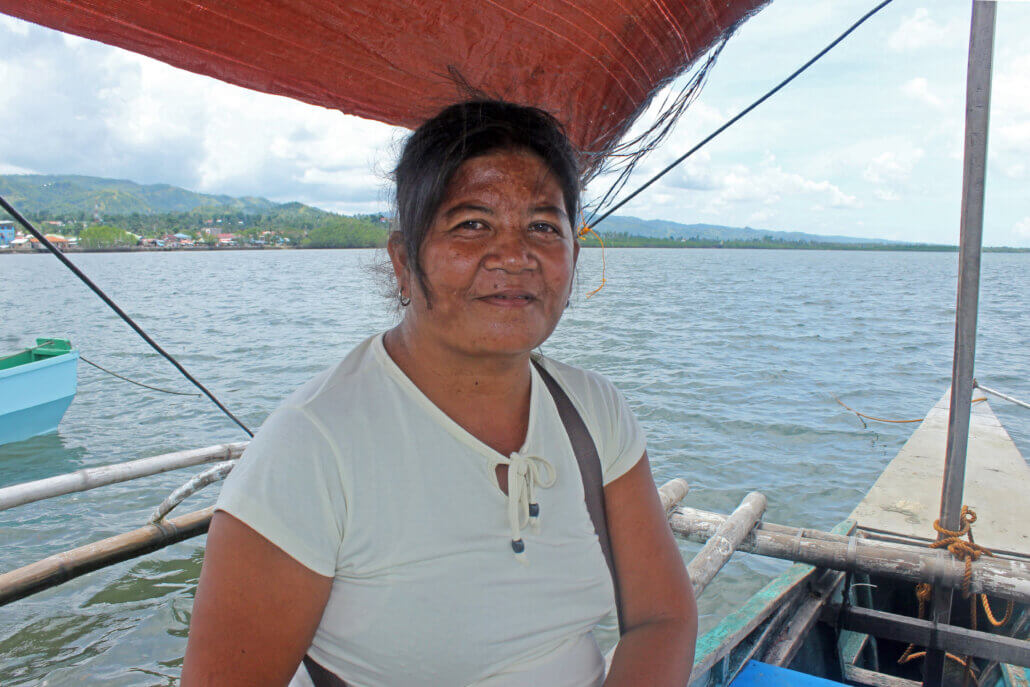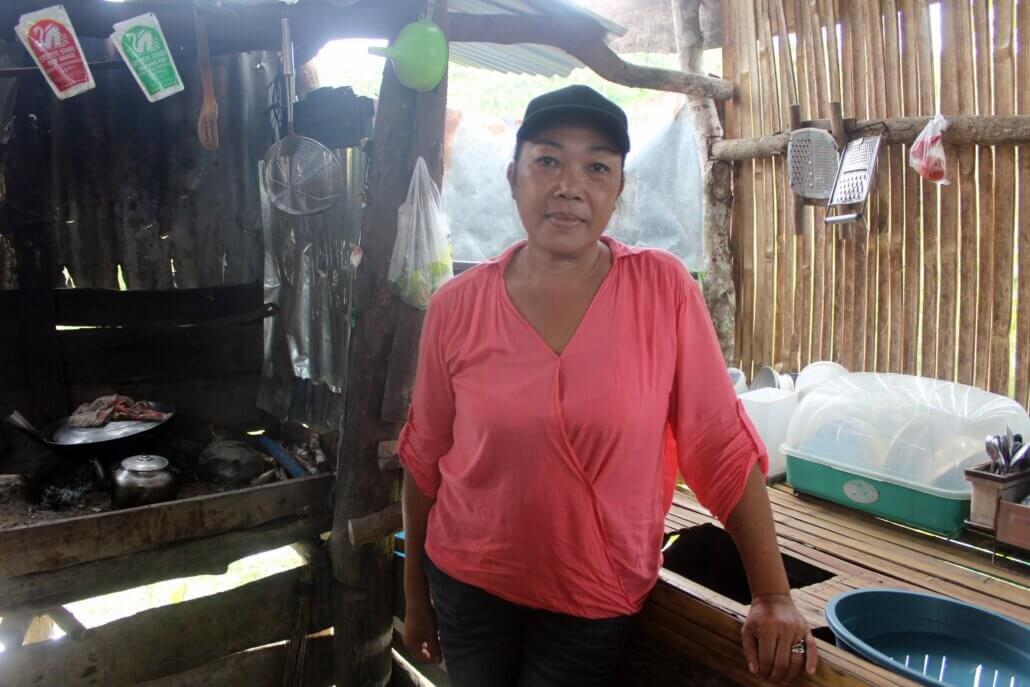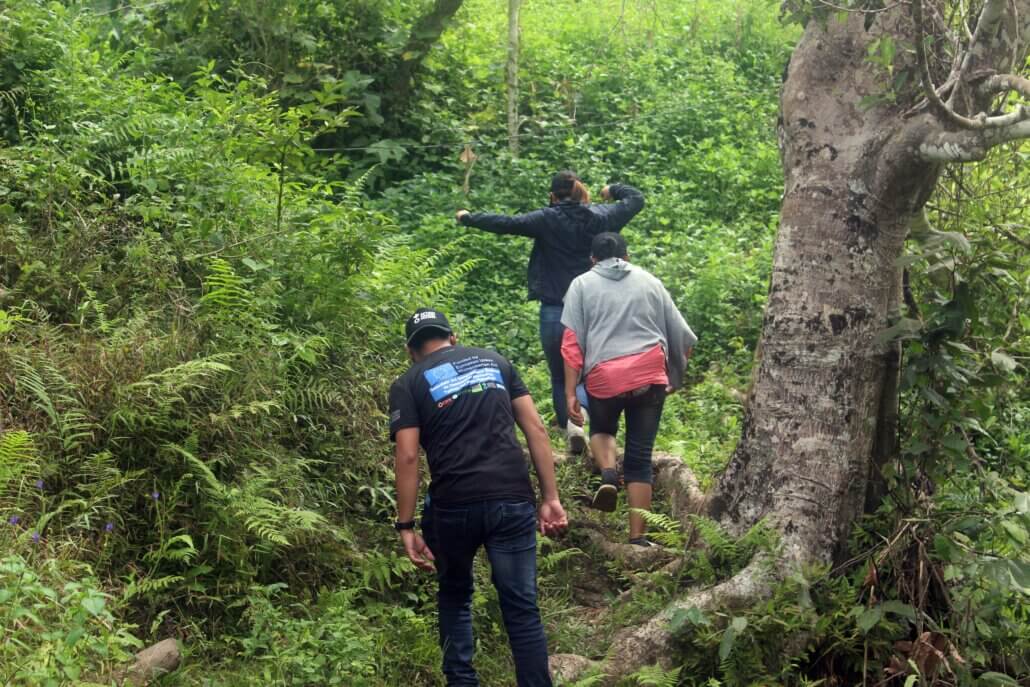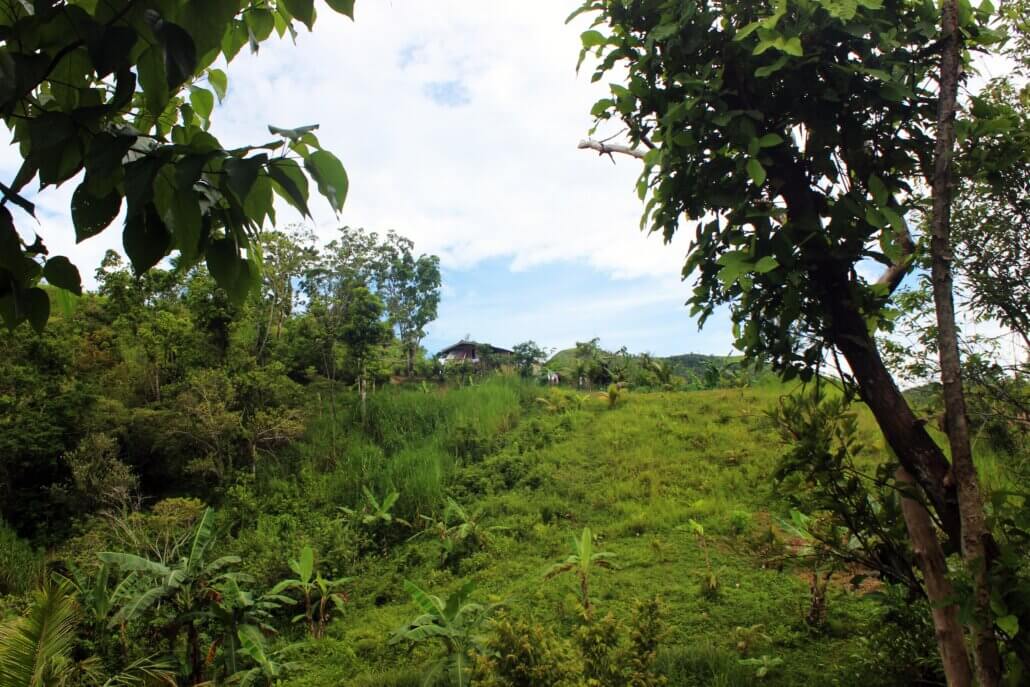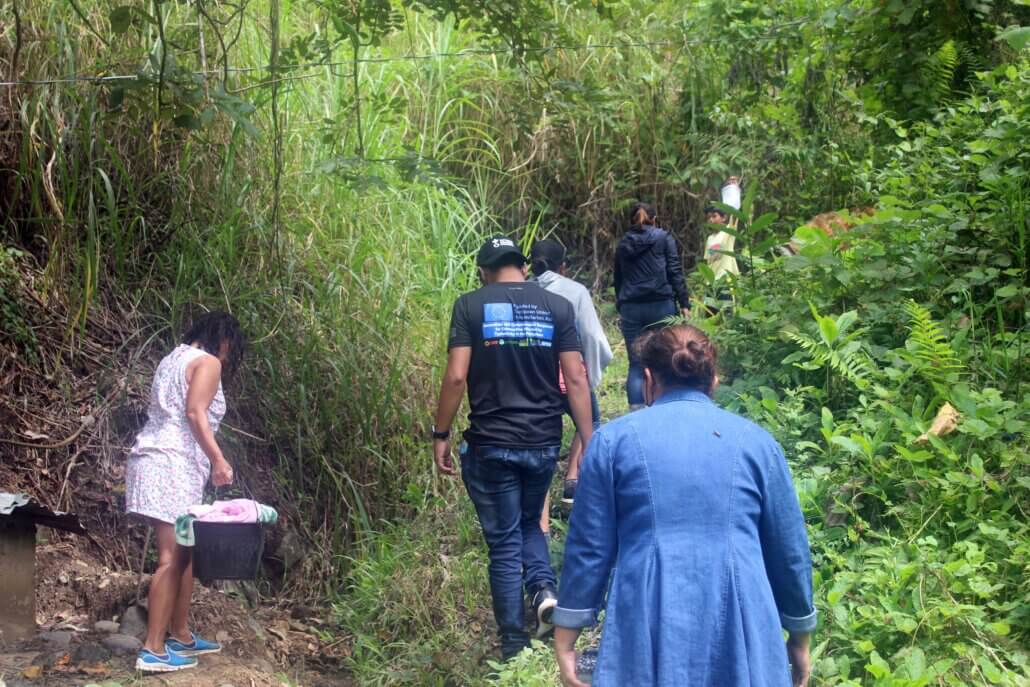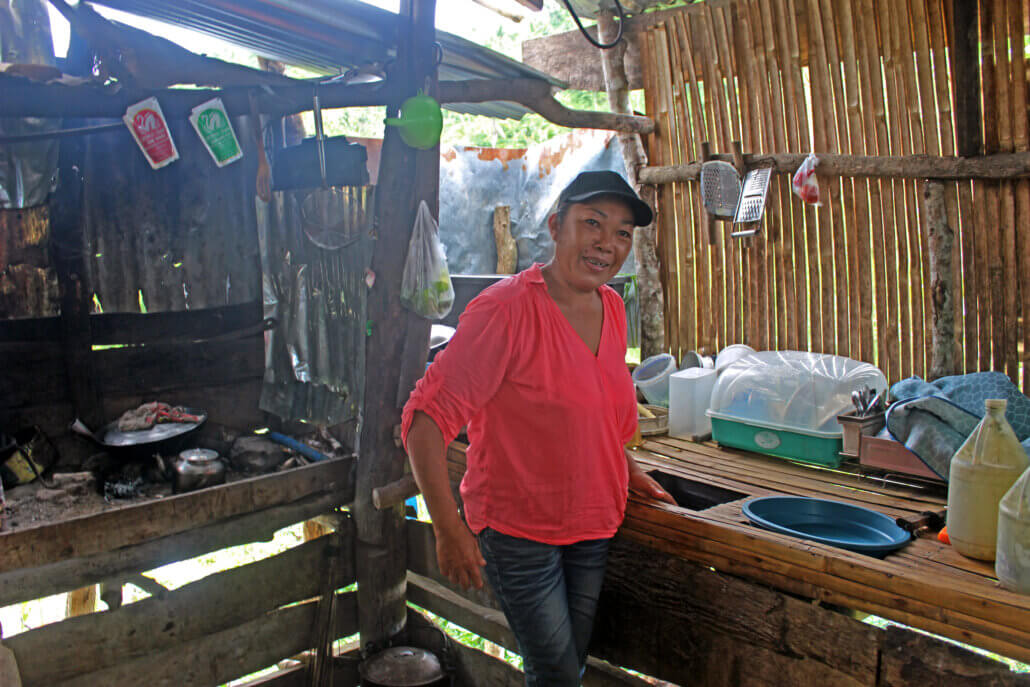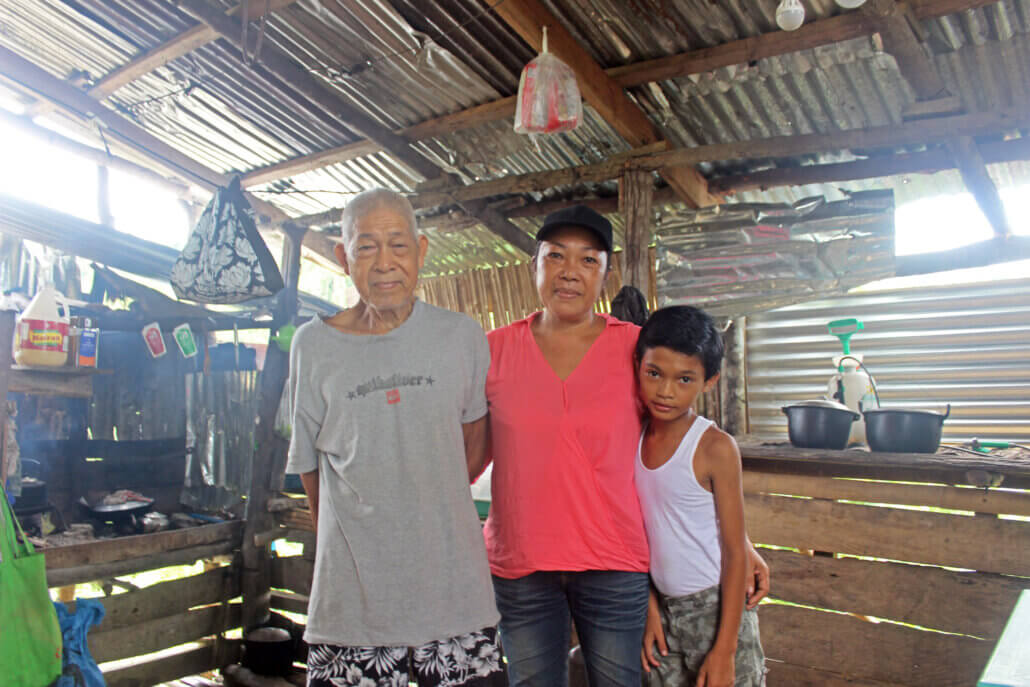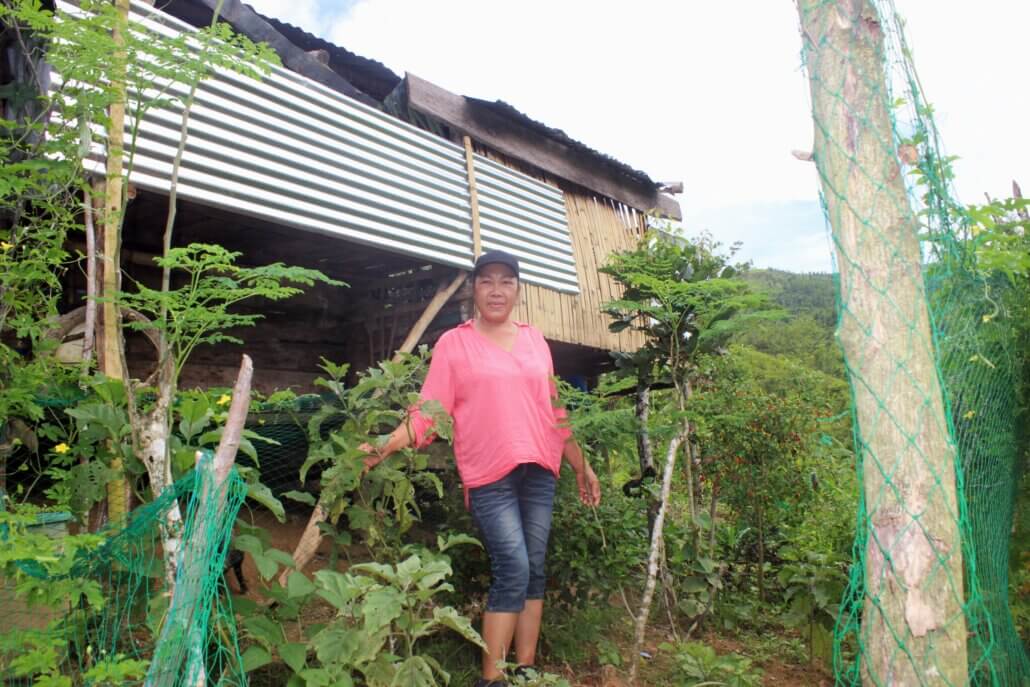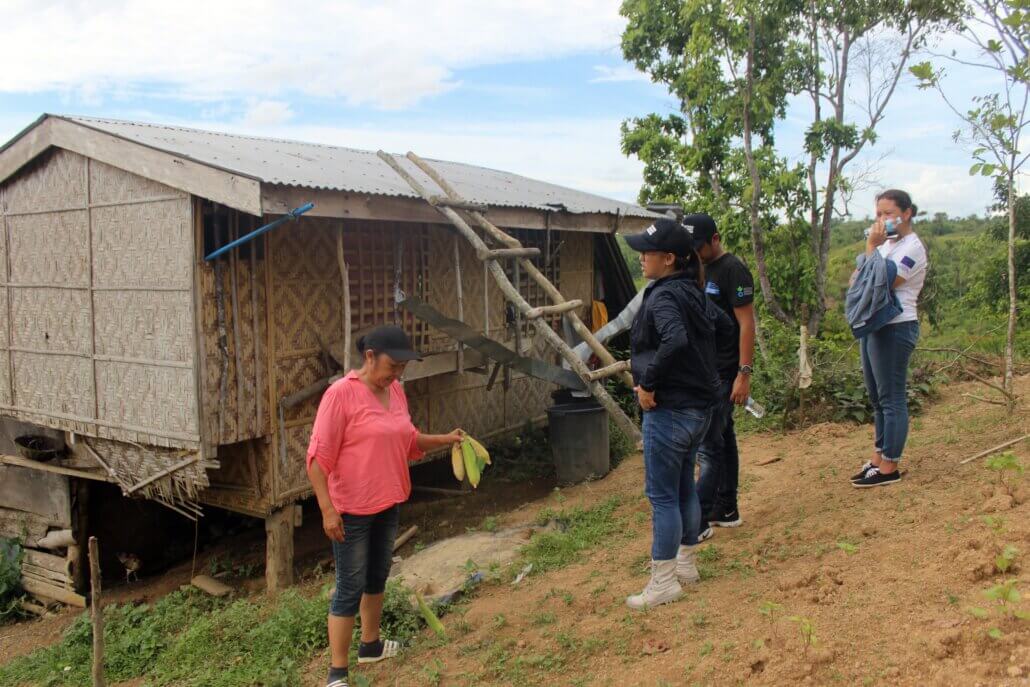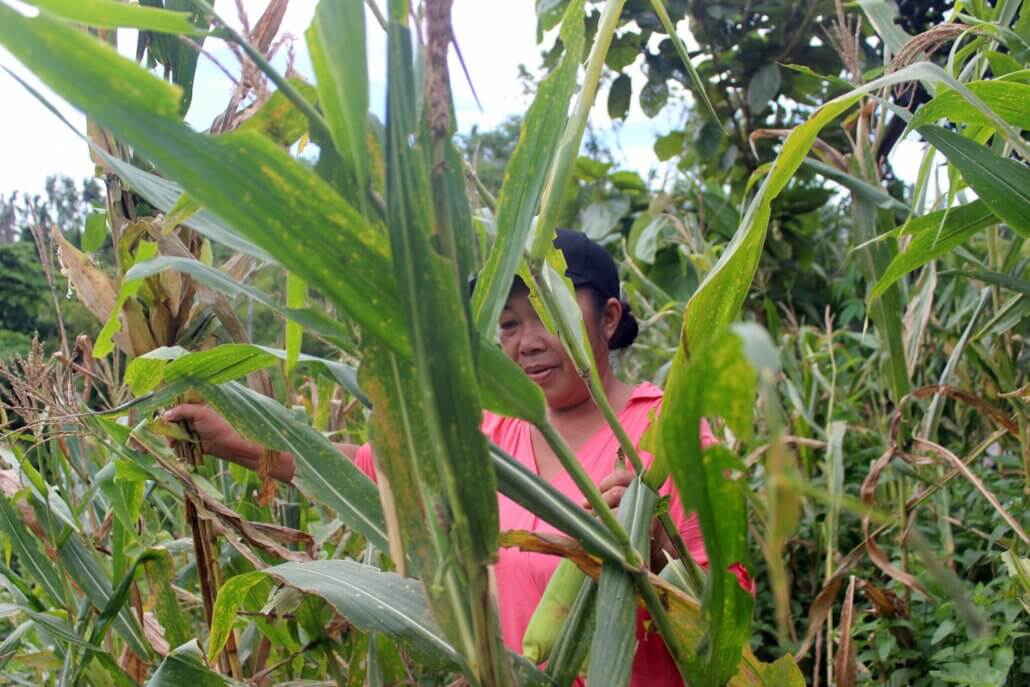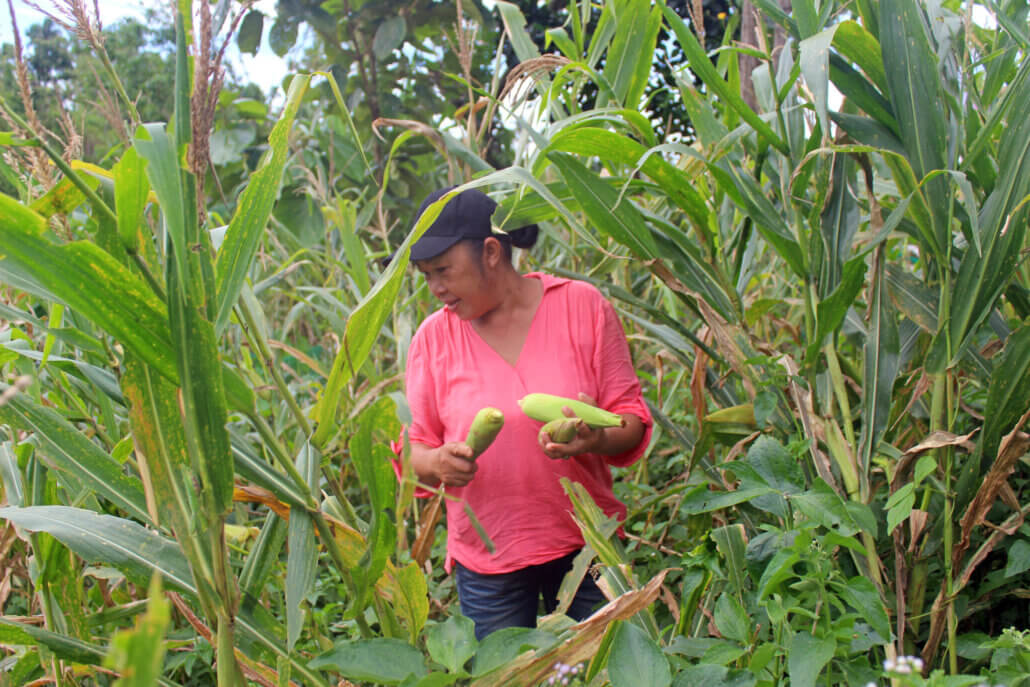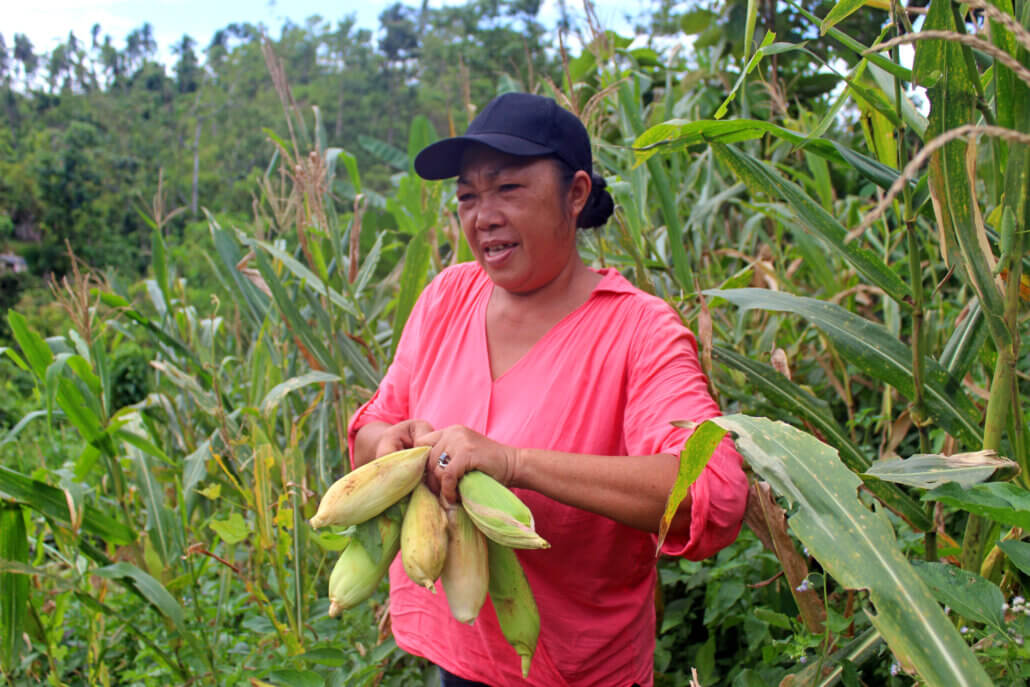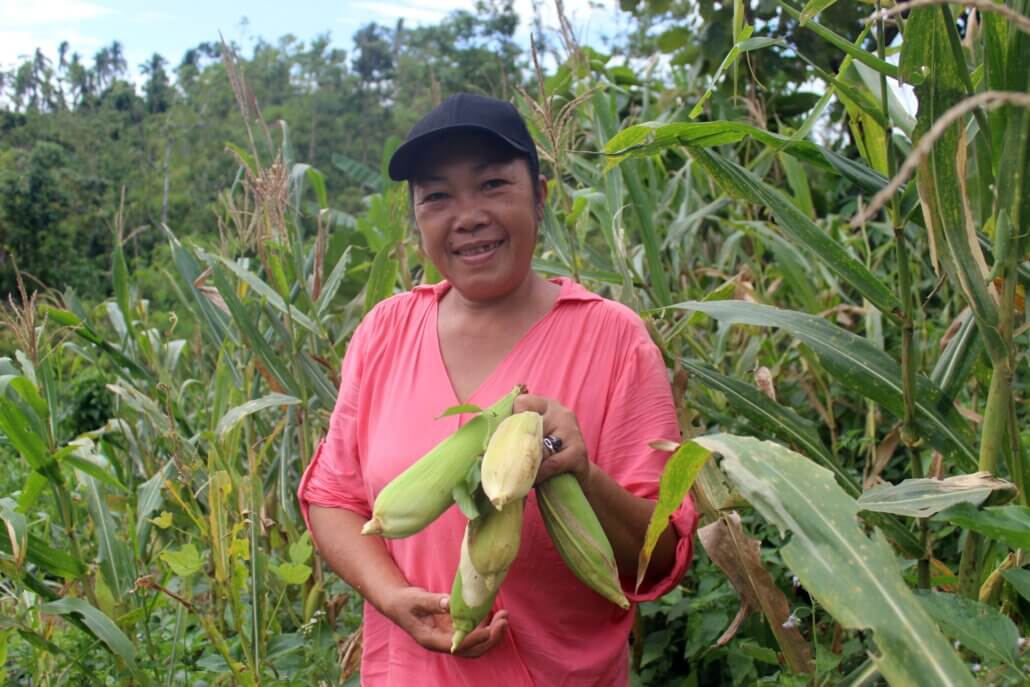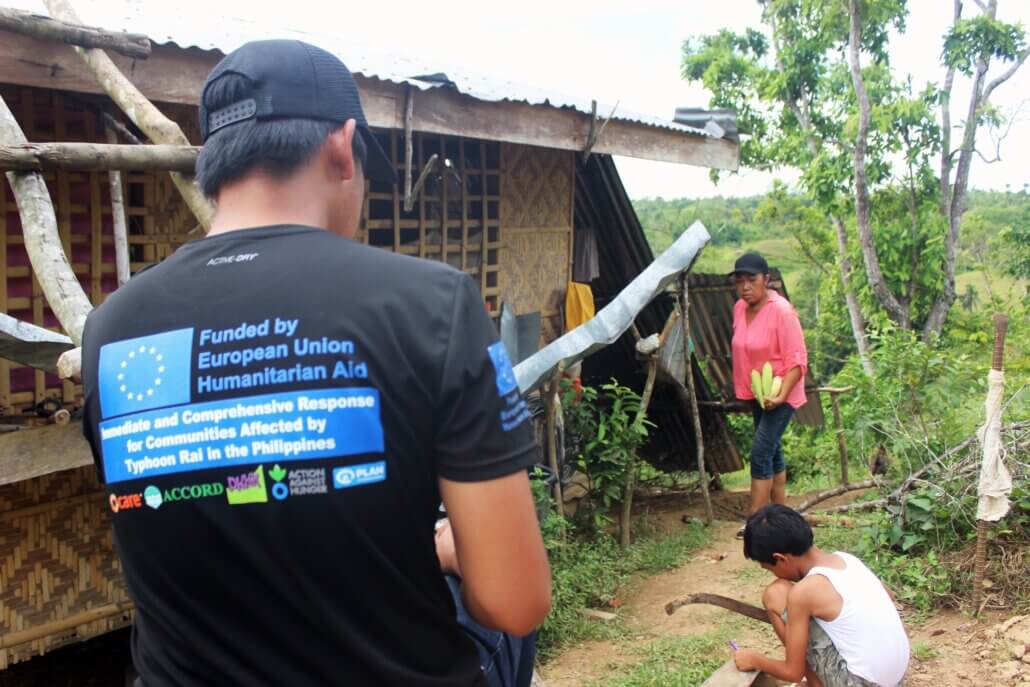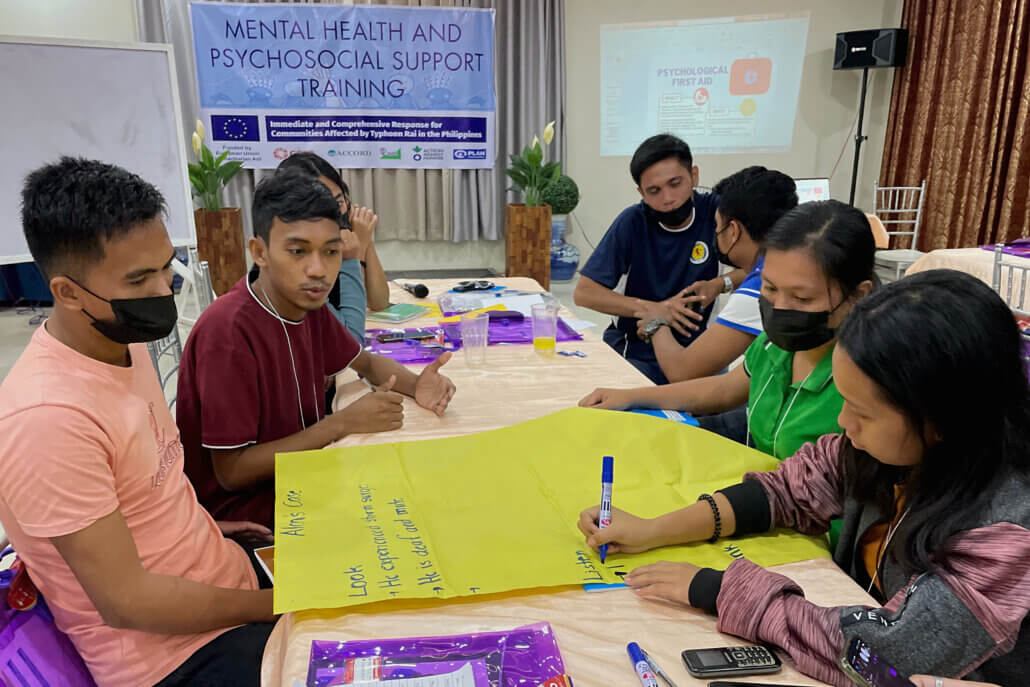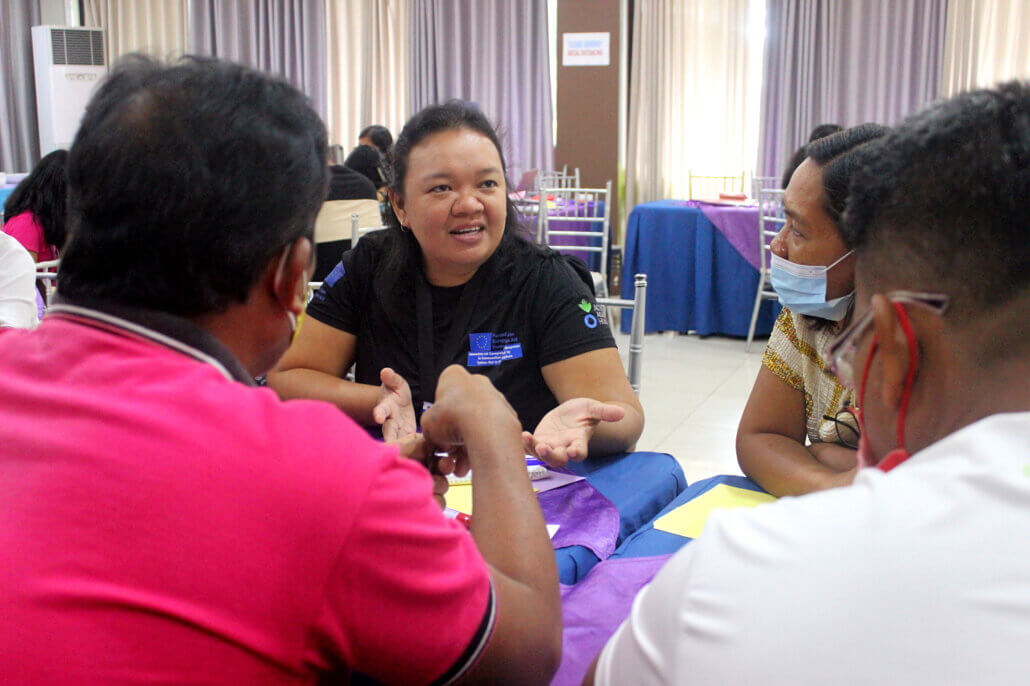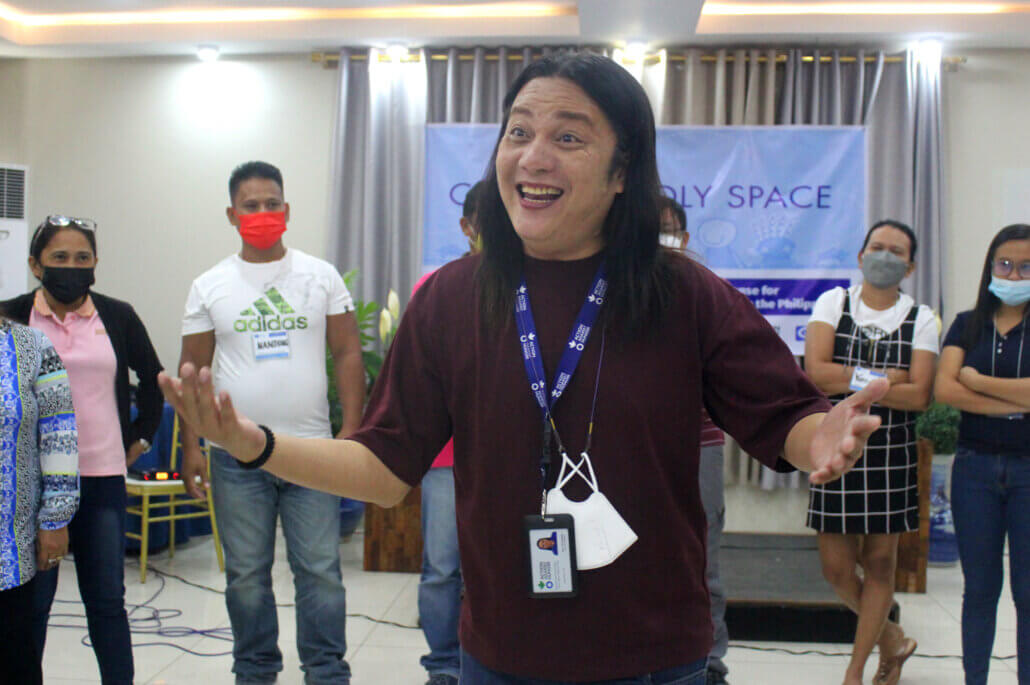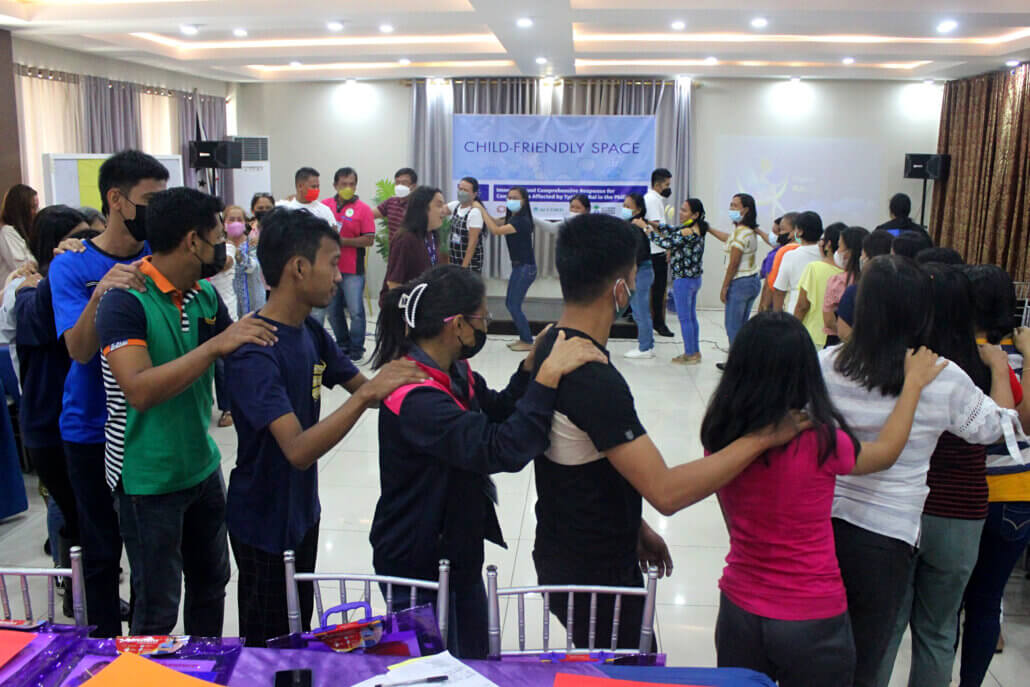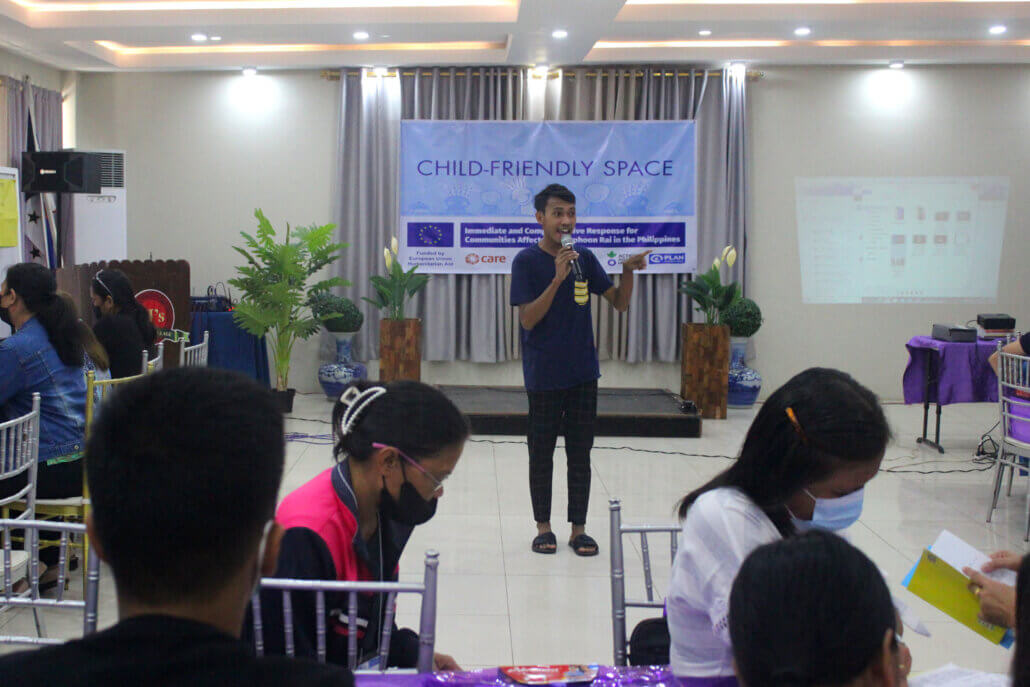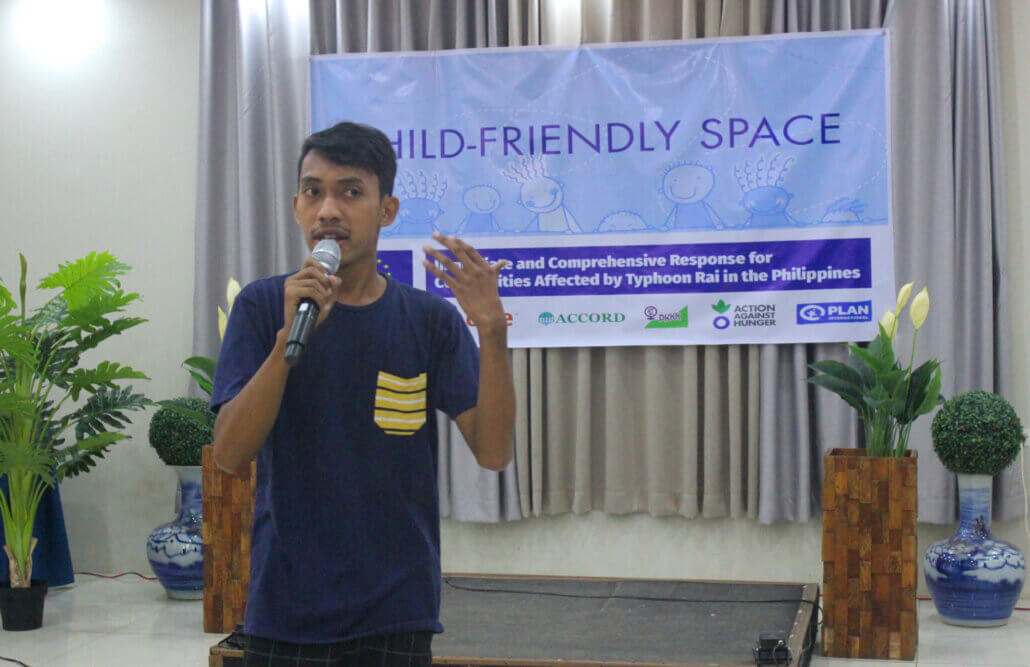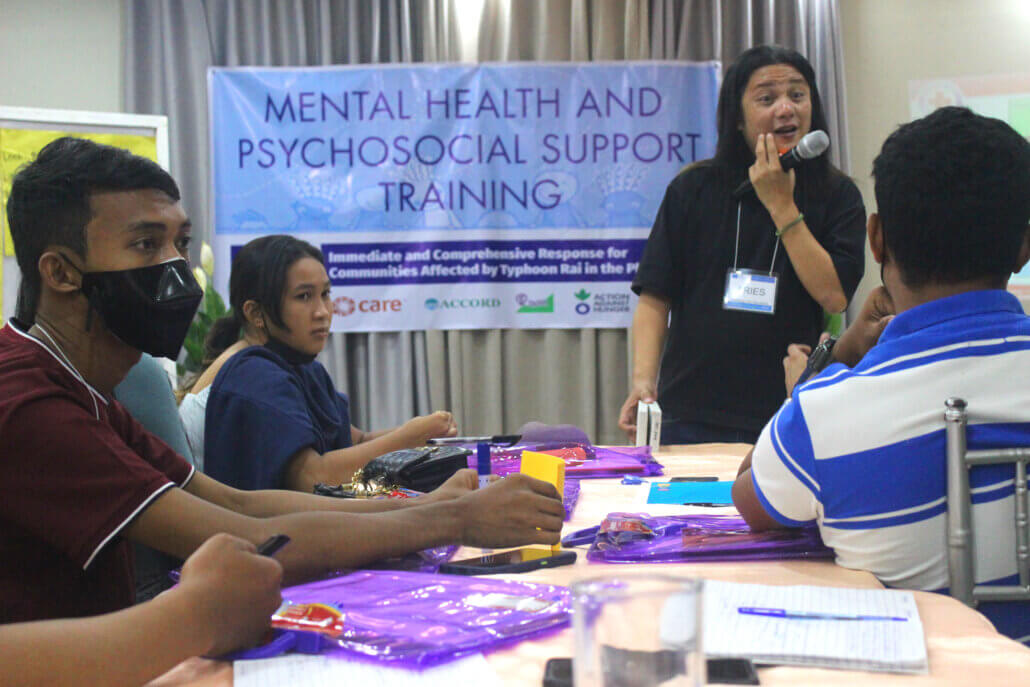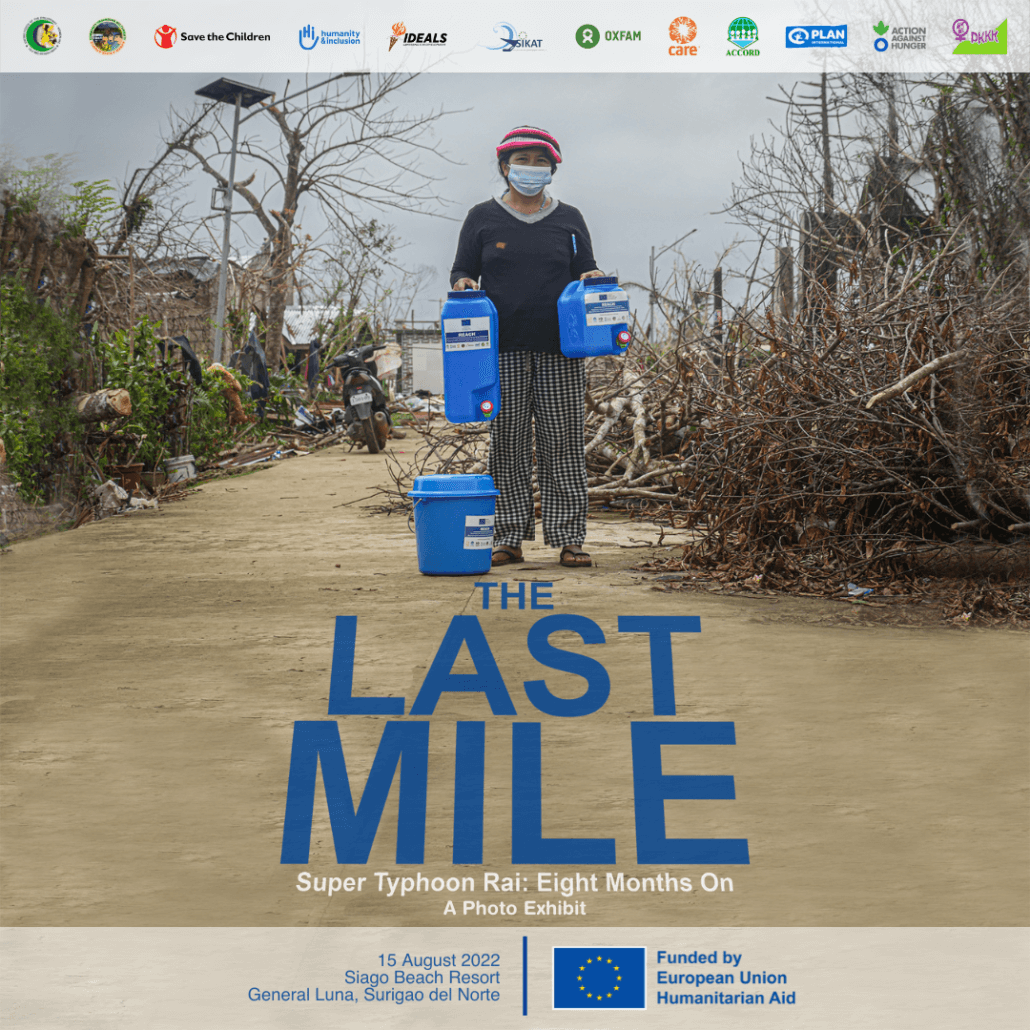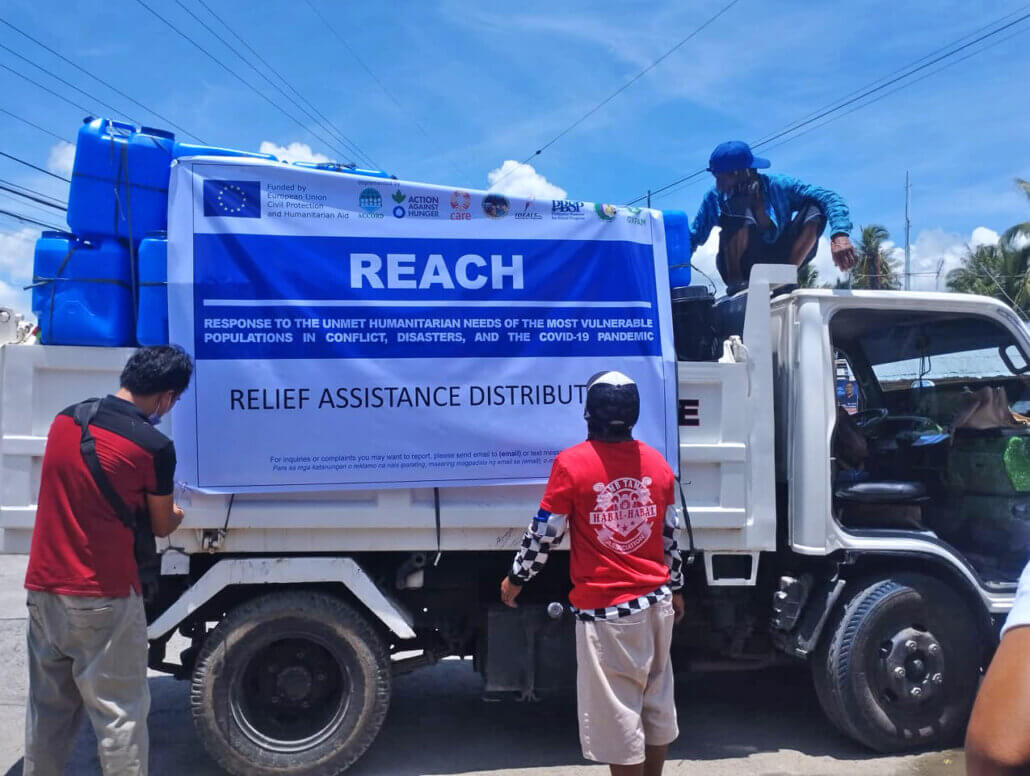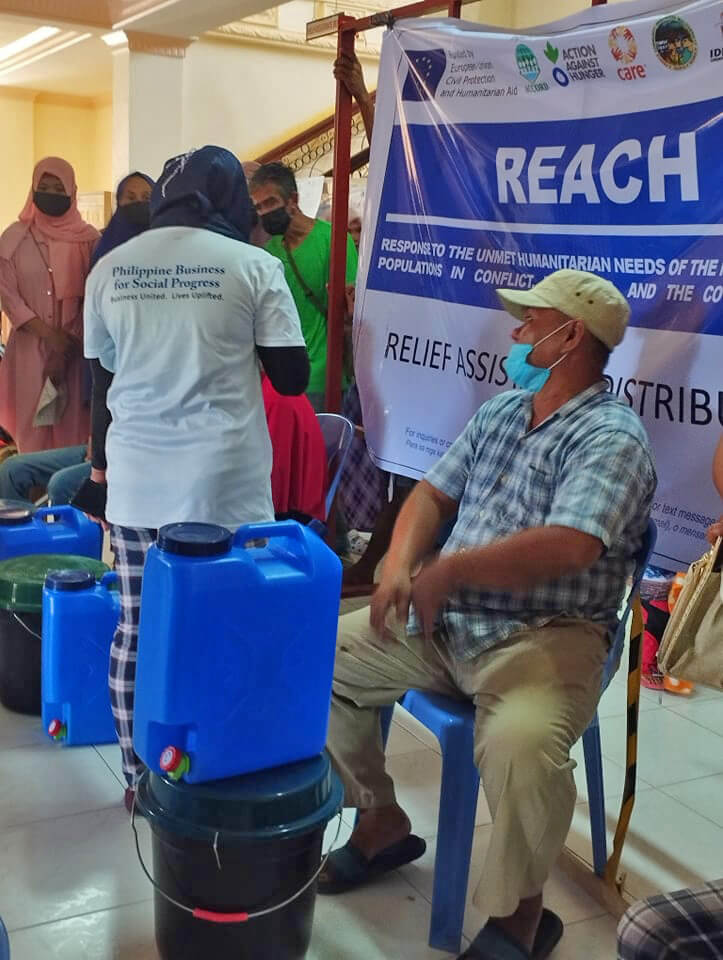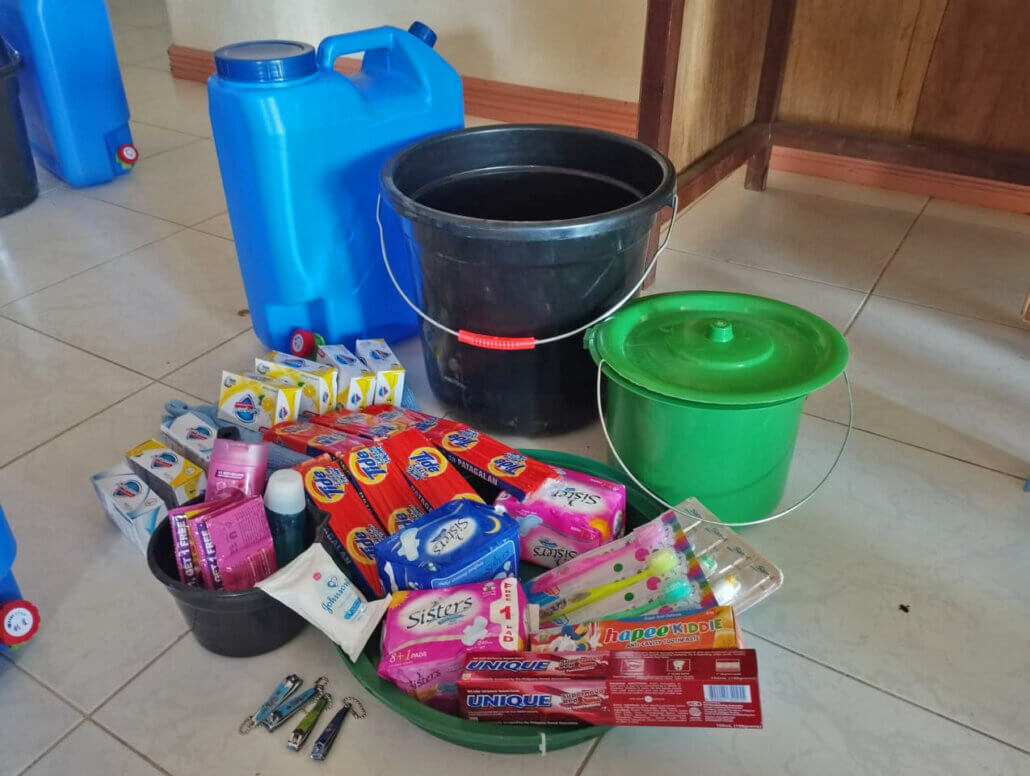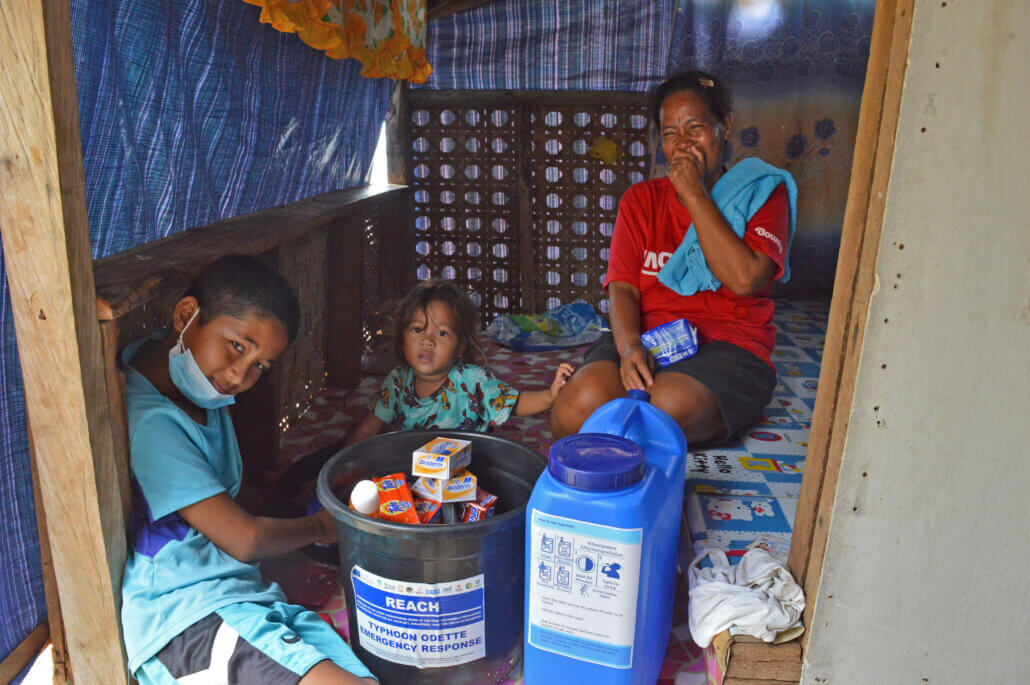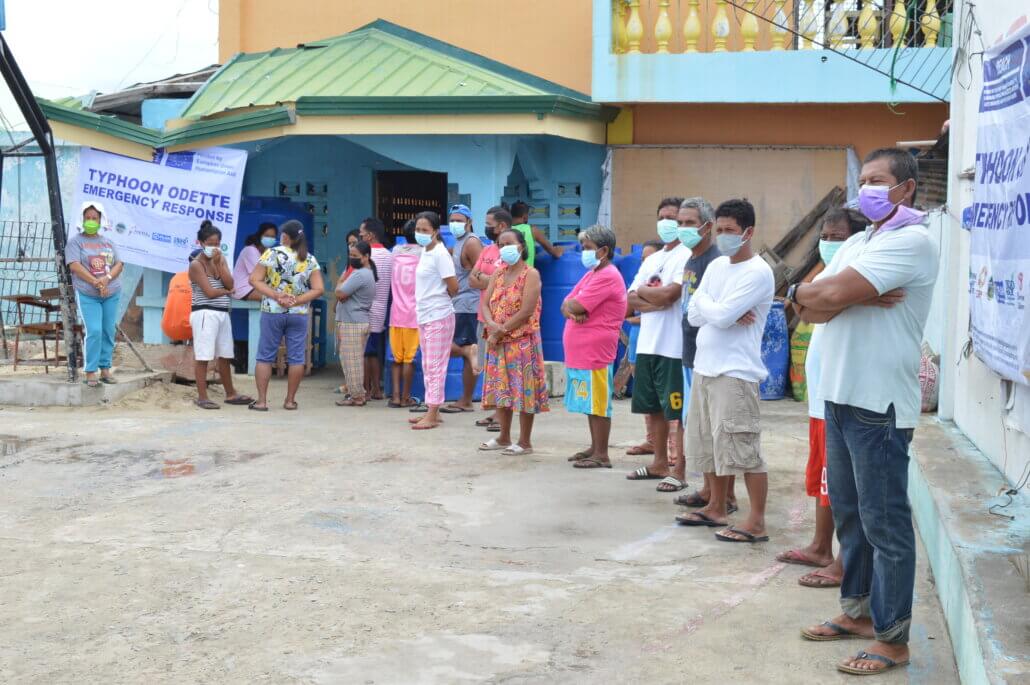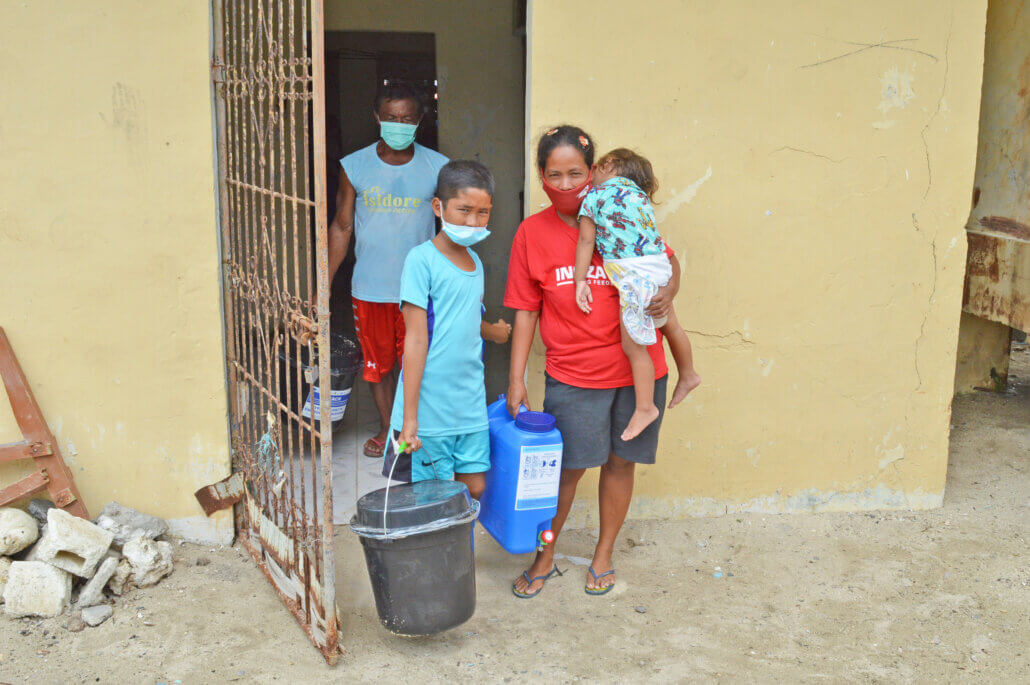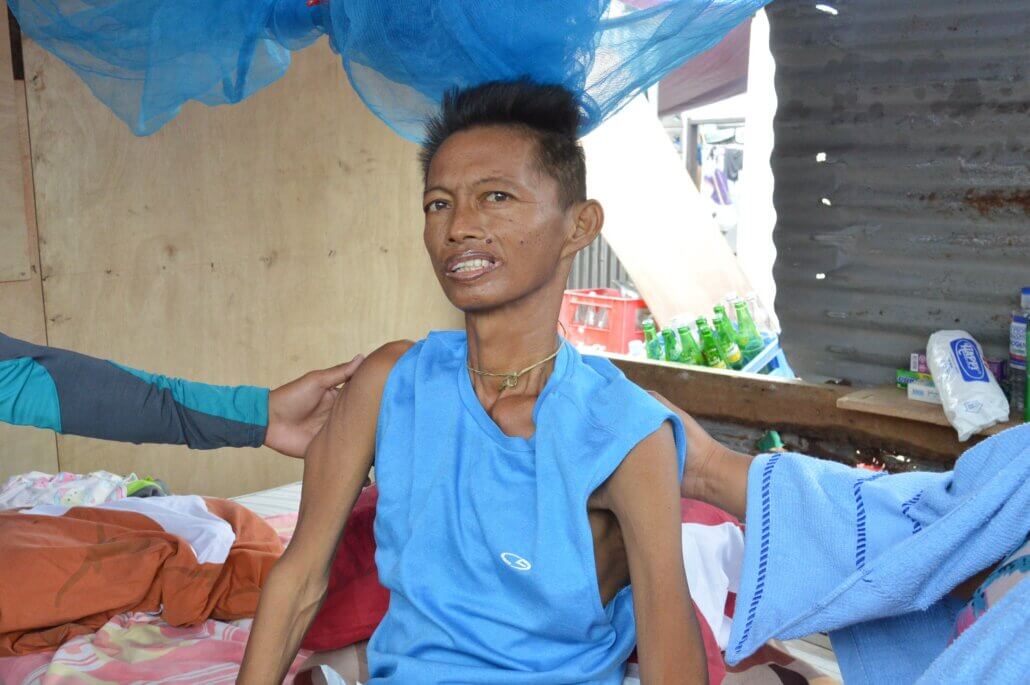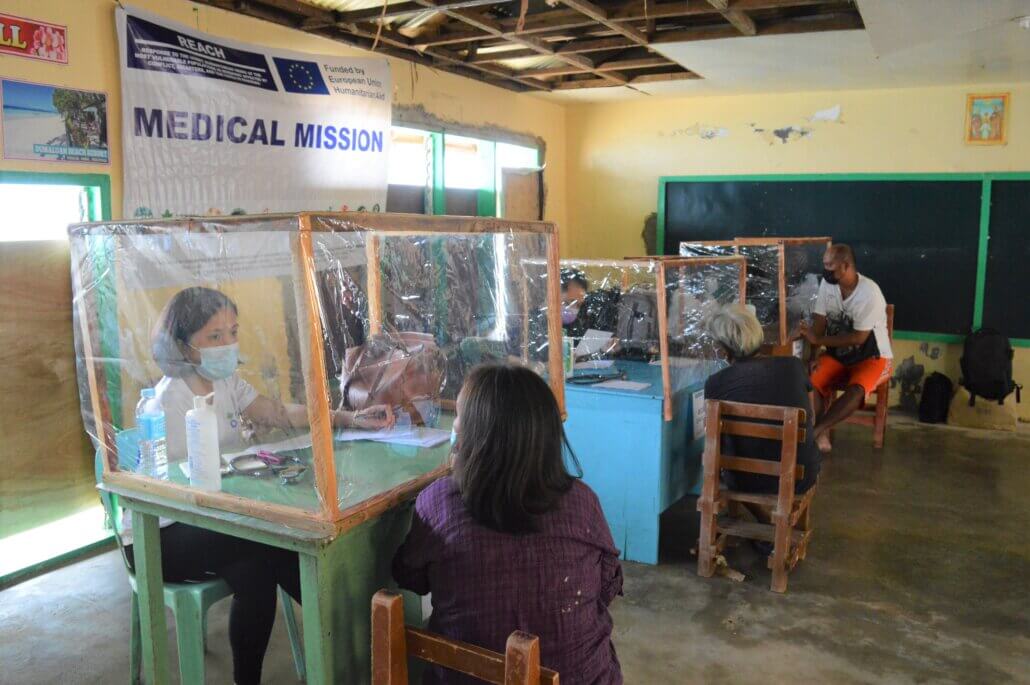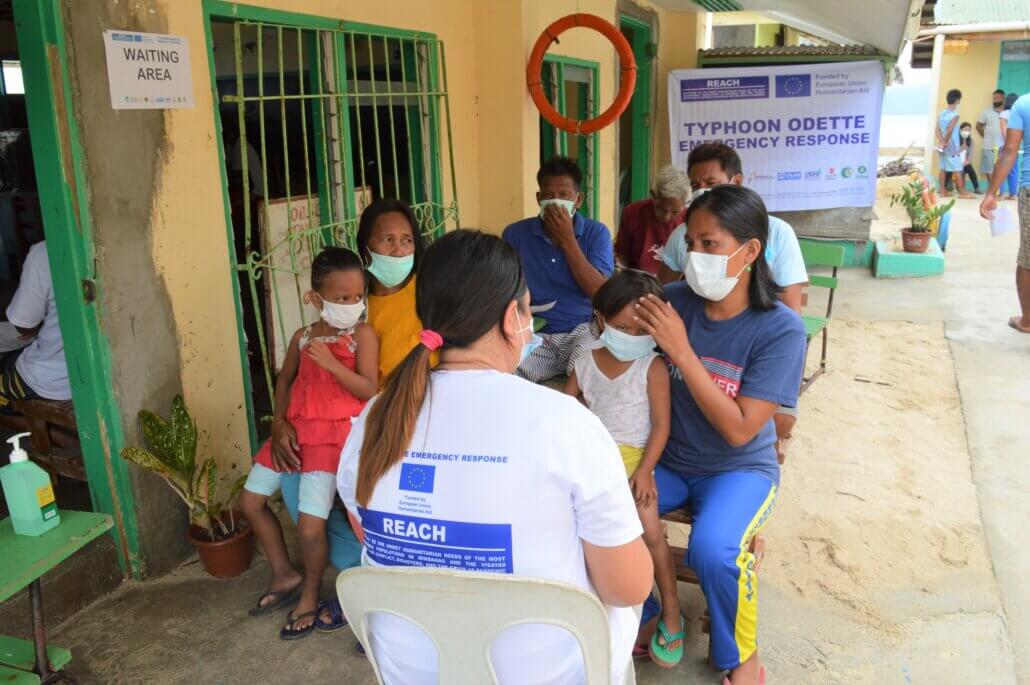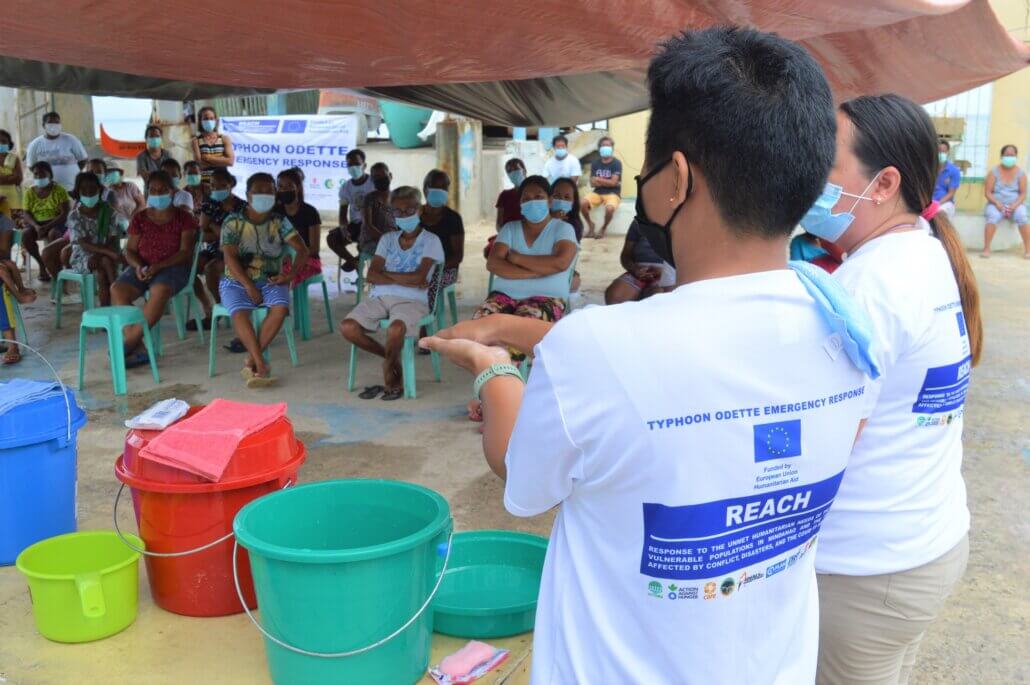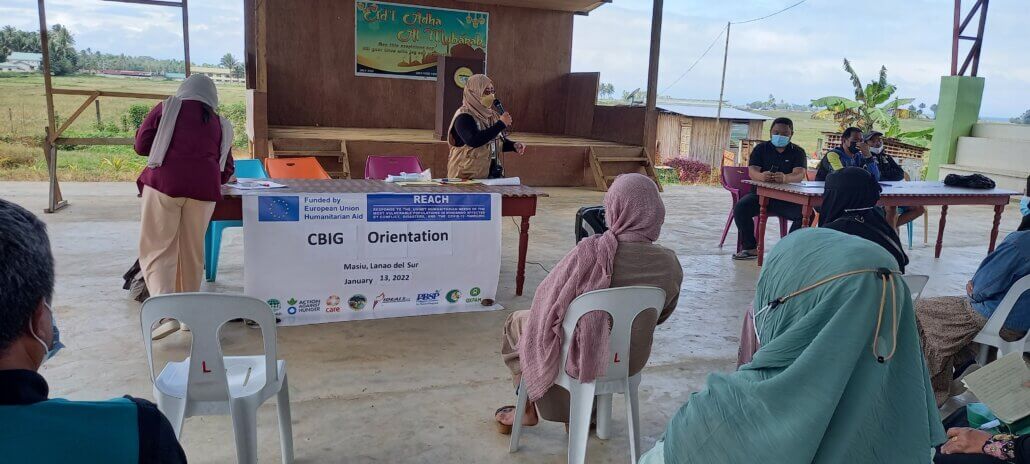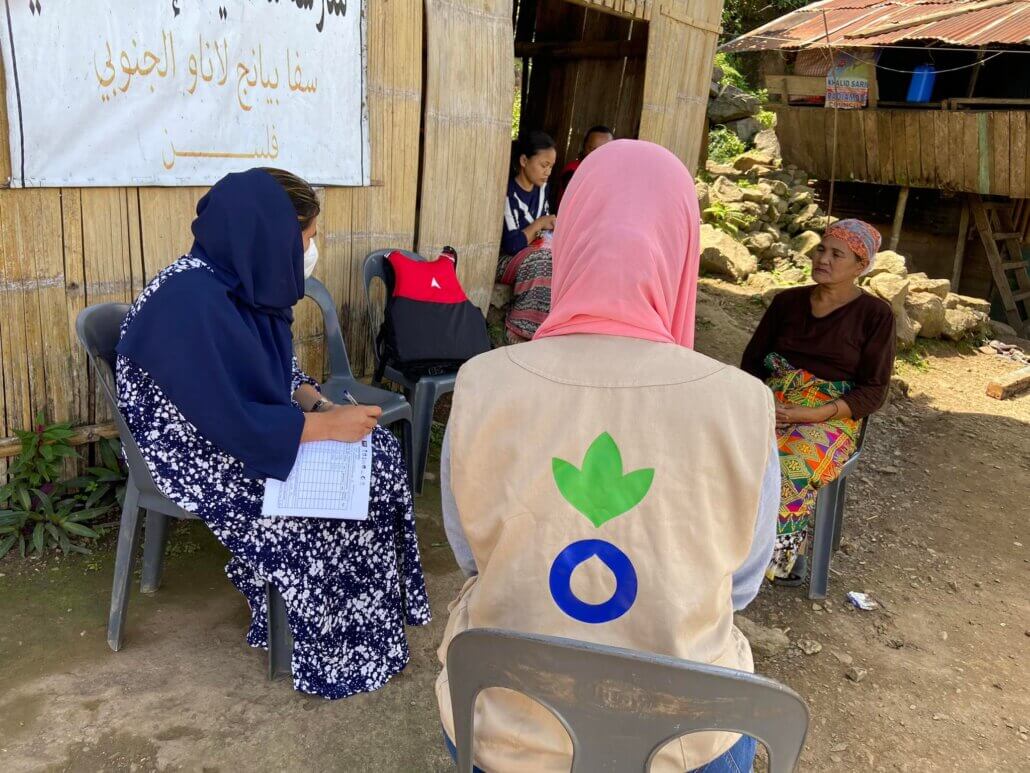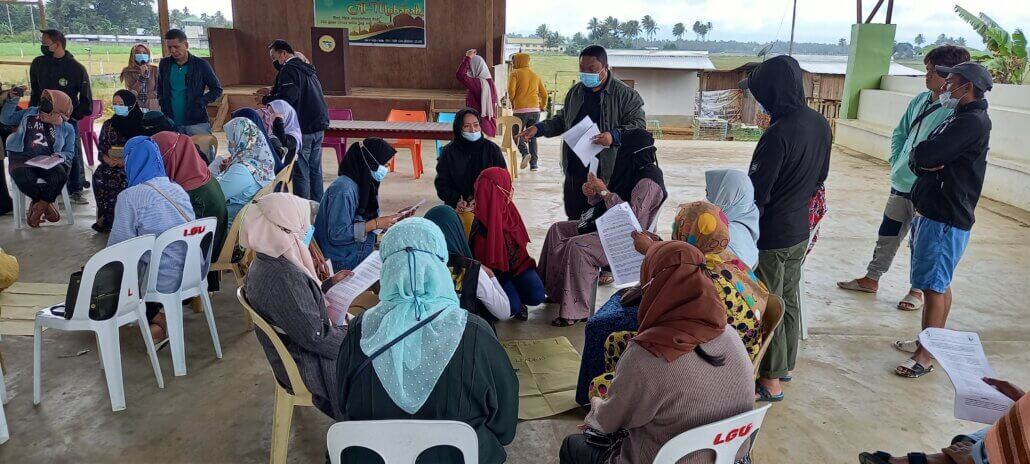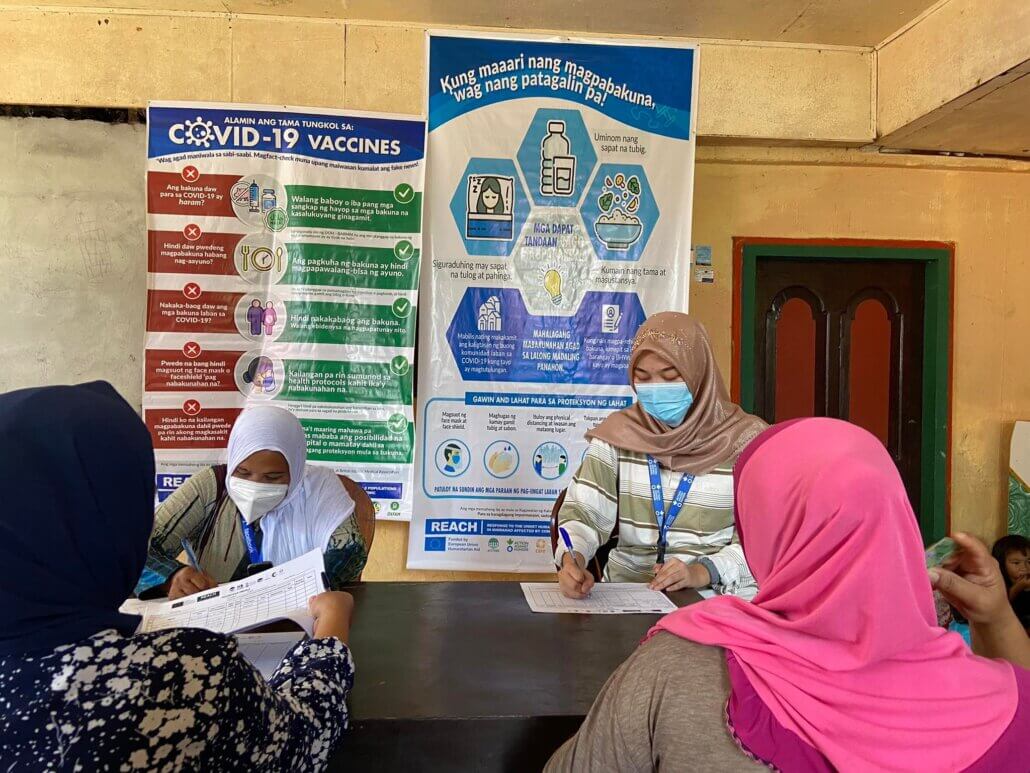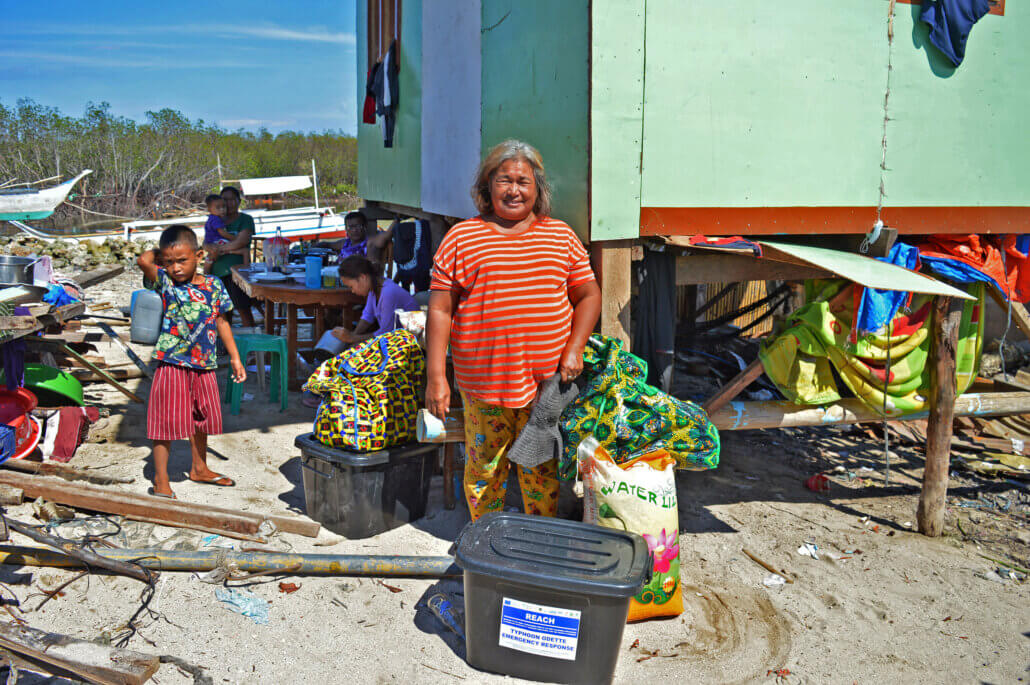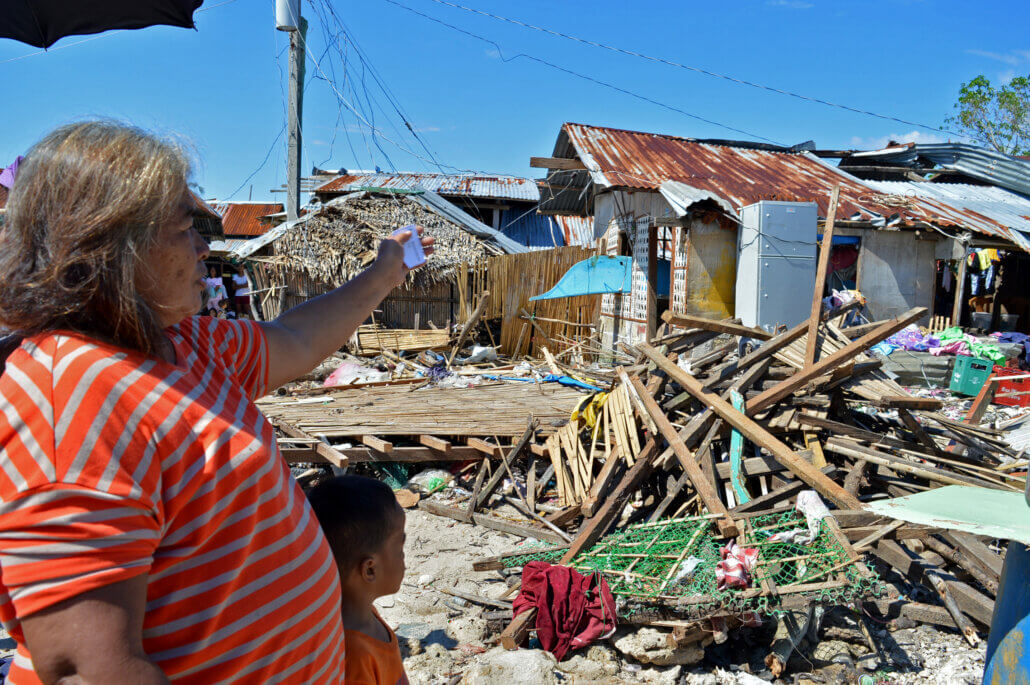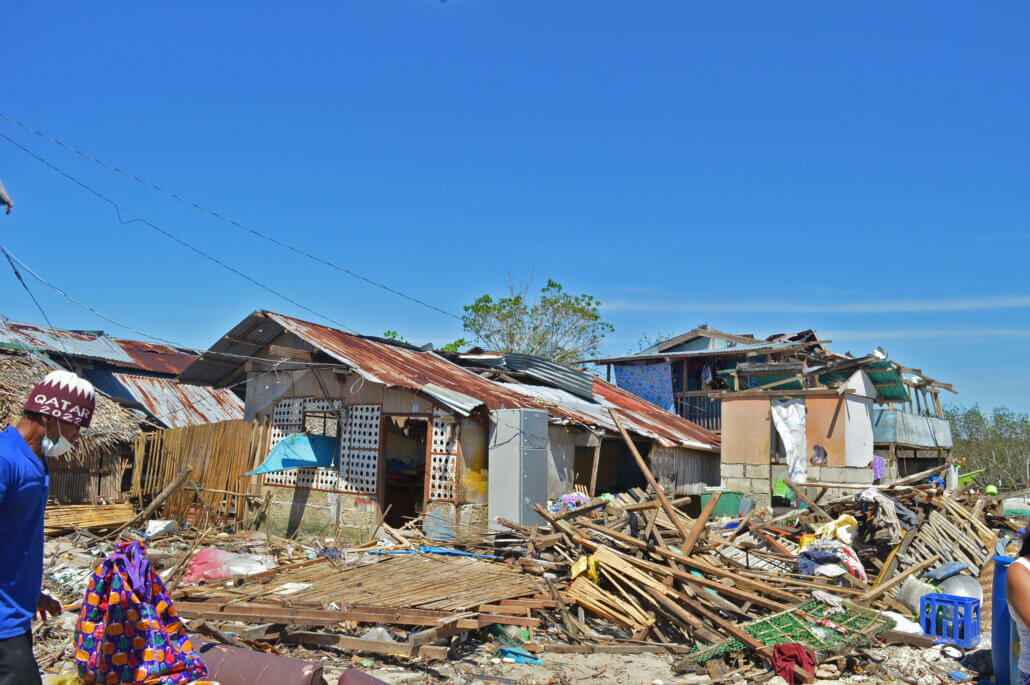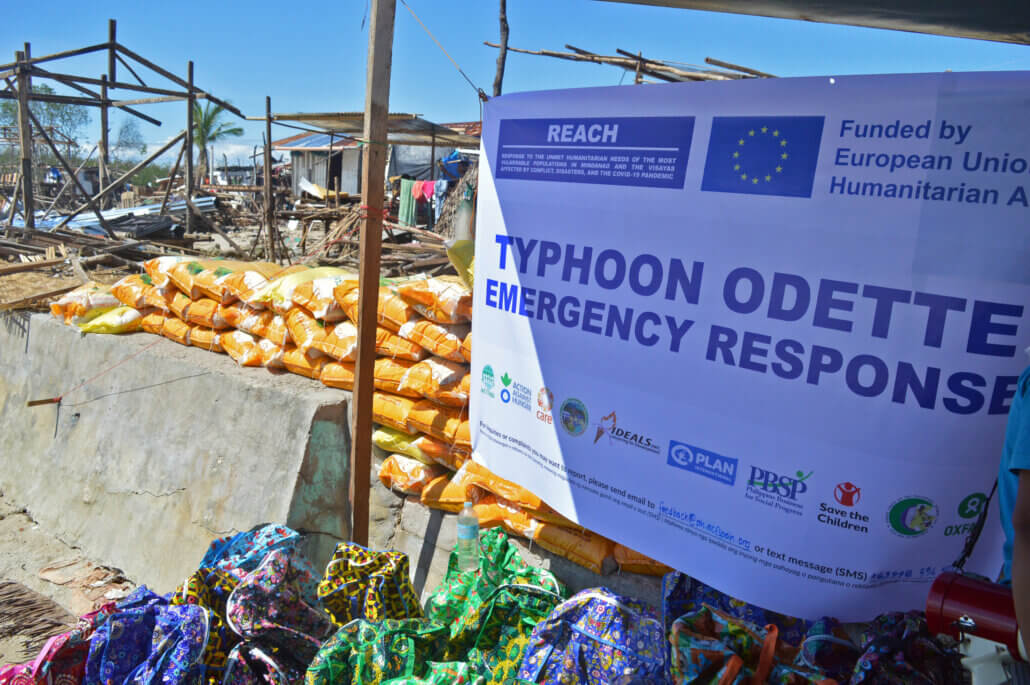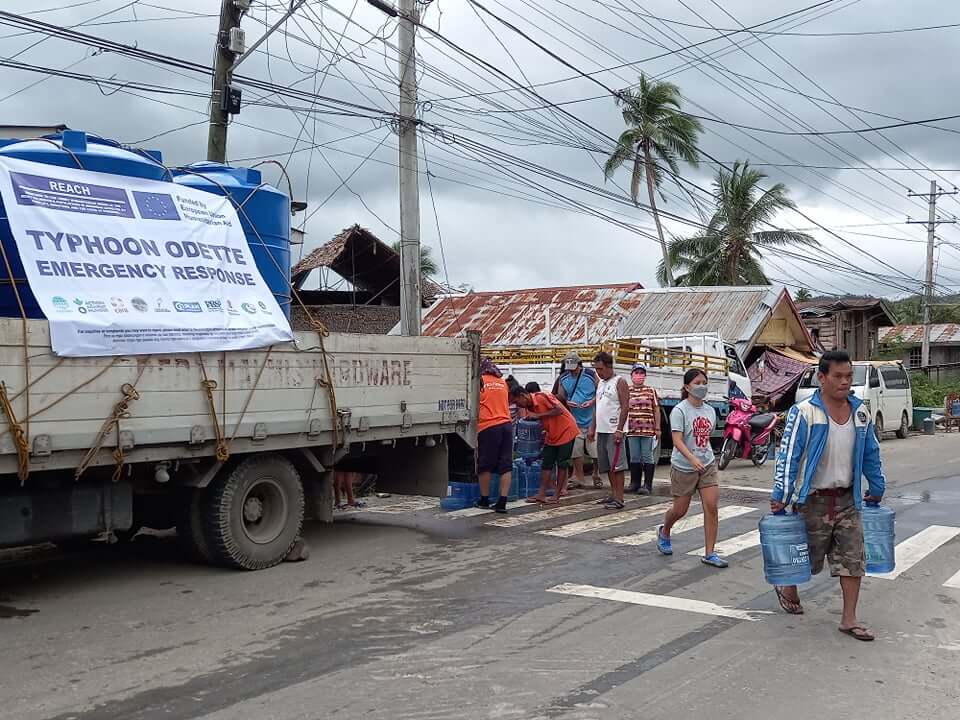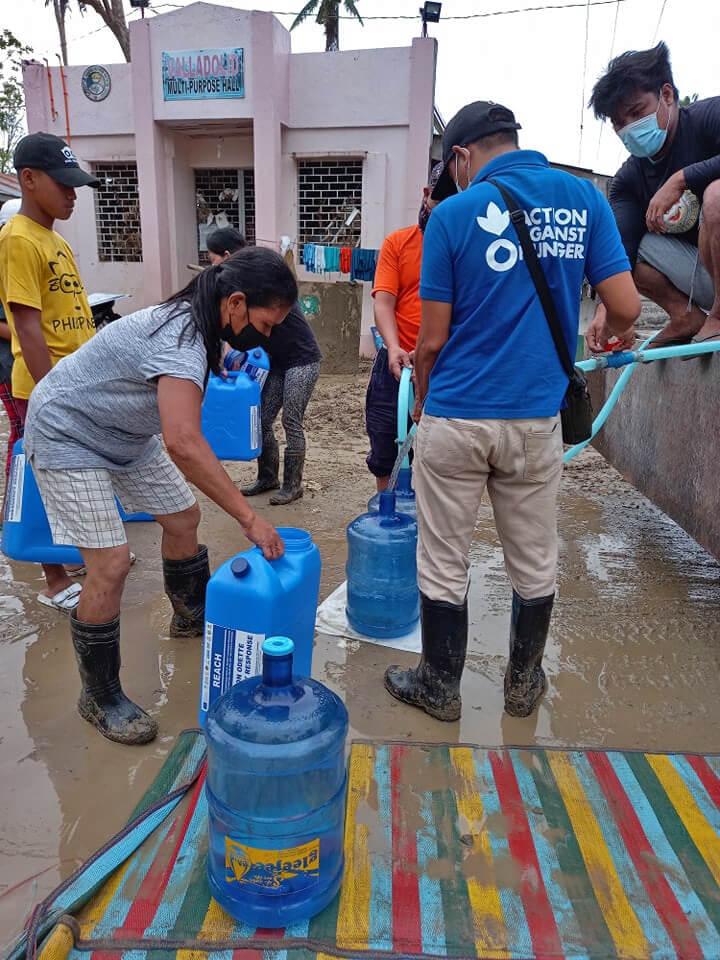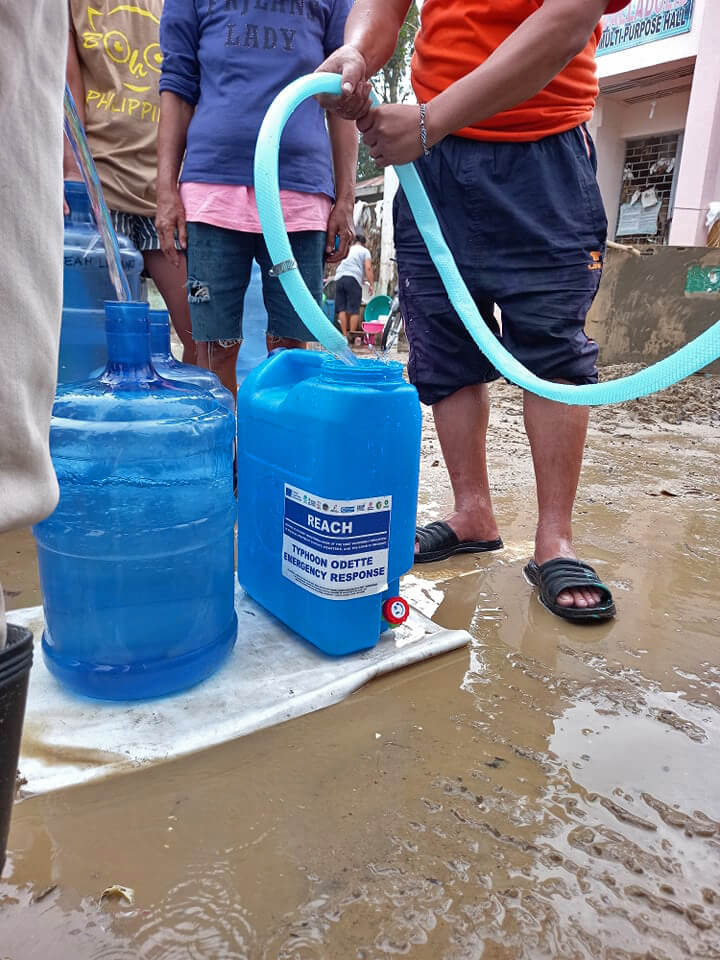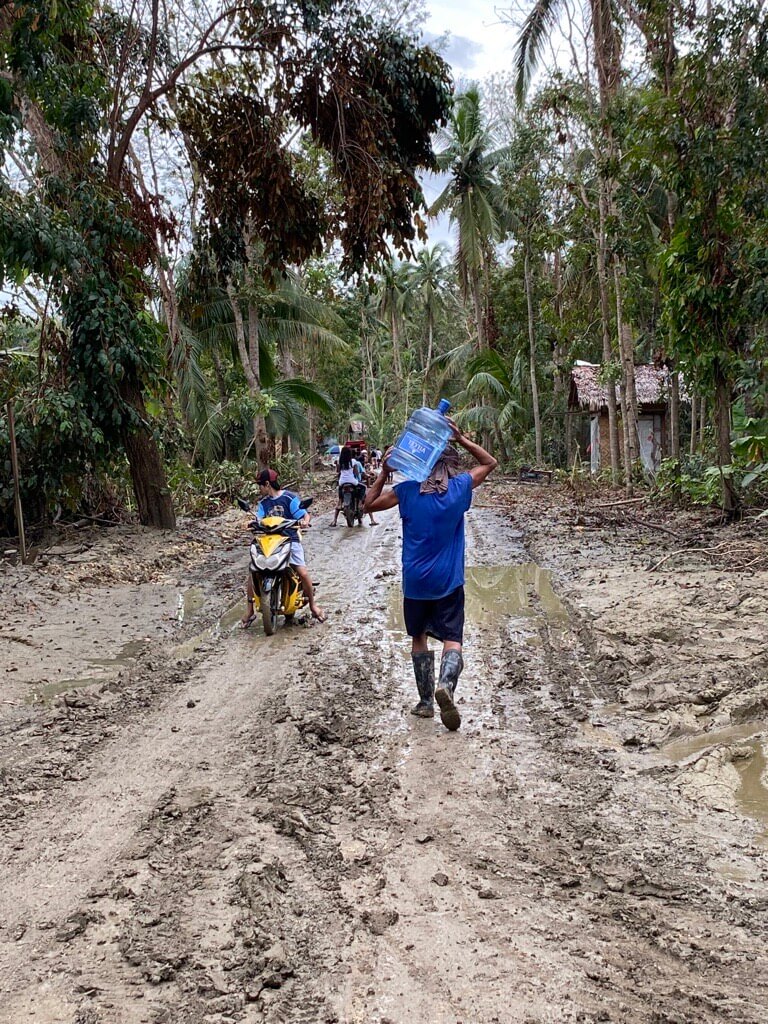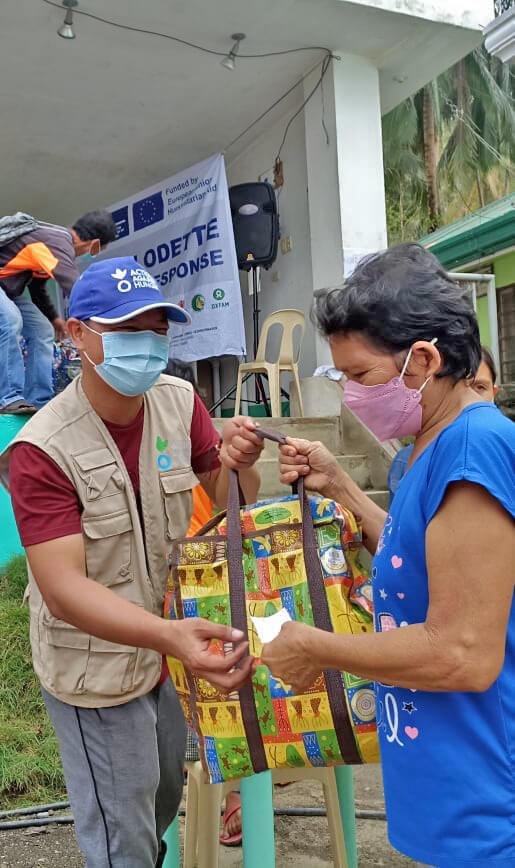Stories from the Field: Sailing Through Rough Seas
The island of Ubay in Tubigon, Bohol is one of the communities hardest hit by Supertyphoon Odette (internationally named Rai)—the strongest typhoon that the province had ever experienced according to their current residents.
To reach the island, one must take a 30-minute boat ride from the mainland of Tubigon. If residents or travelers do not have their own boat, it costs fifty pesos for a one-way trip. Being a hard-to-reach community and with most of its houses totally damaged by the typhoon—Ubay was identified as one of the beneficiary communities of the Immediate and Comprehensive Response for Communities Affected by Typhoon Rai in the Philippines project funded by the European Civil Protection and Humanitarian Aid (ECHO).
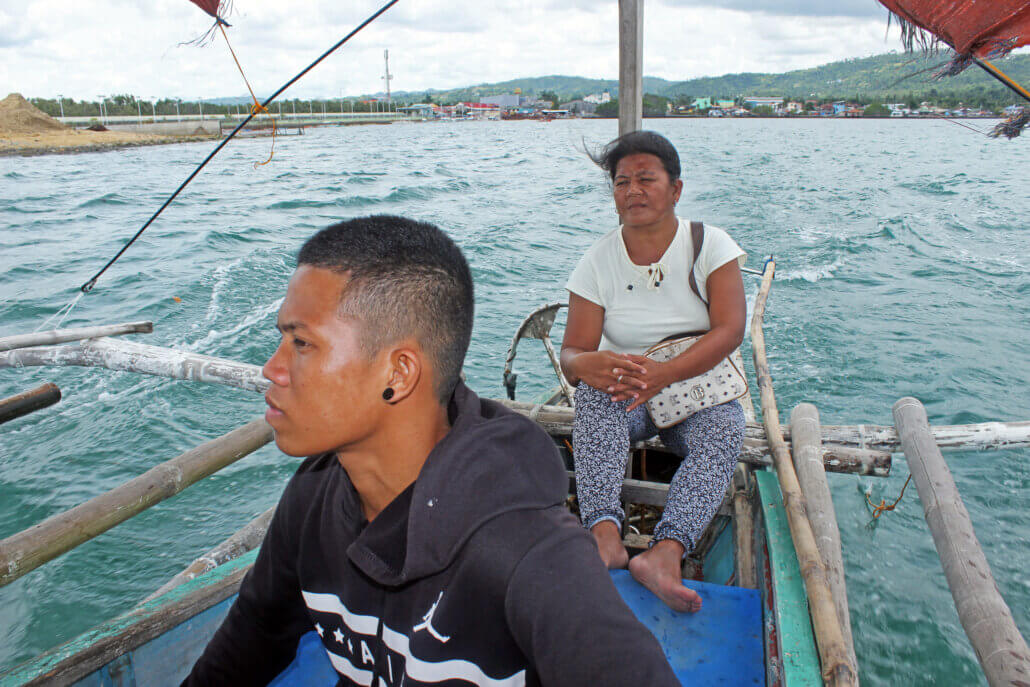
Marichu and her son ride on their boat on the way to the island from the mainland of the town of Tubigon.
Marichu Reyes and her family are residents of the island. The day-to-day life of Marichu and her family primarily revolves around the island. Her husband is a full-time fisherman who works day and night to catch fish and other seafood for selling and consumption. The sea is the family’s means of survival and source of income. Unfortunately, with climate change making natural disasters even worse in recent years, the family’s source of living is affected.
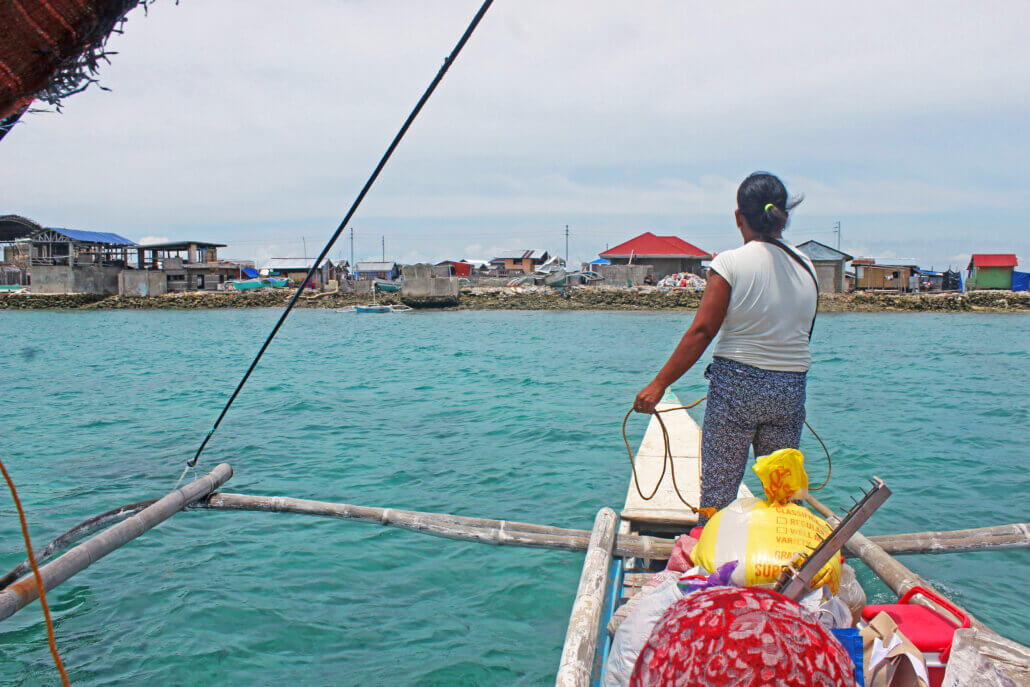
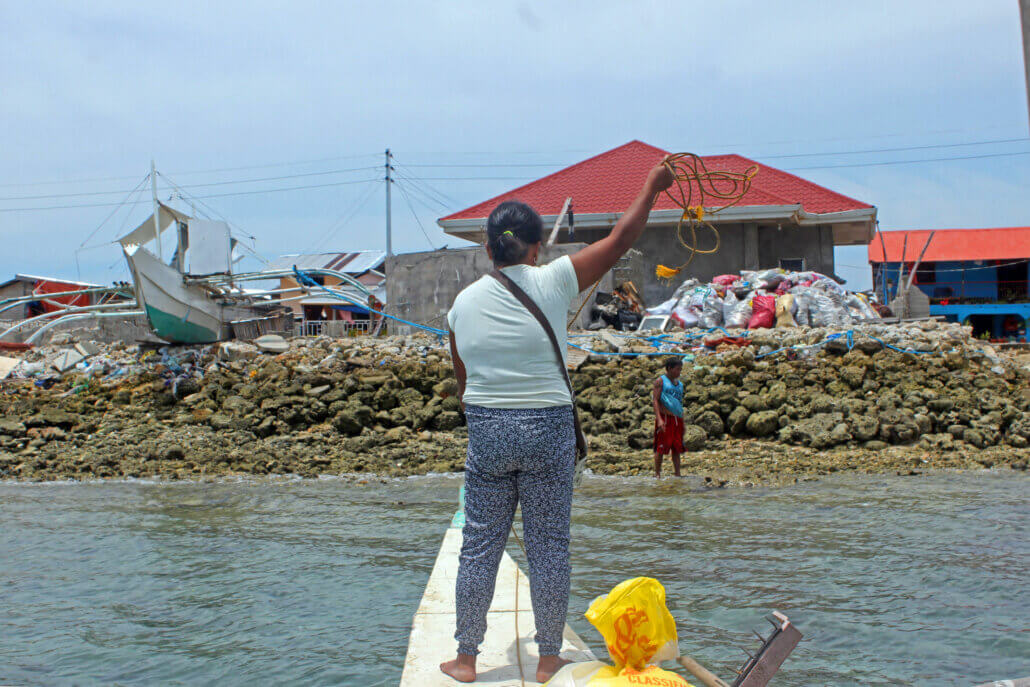
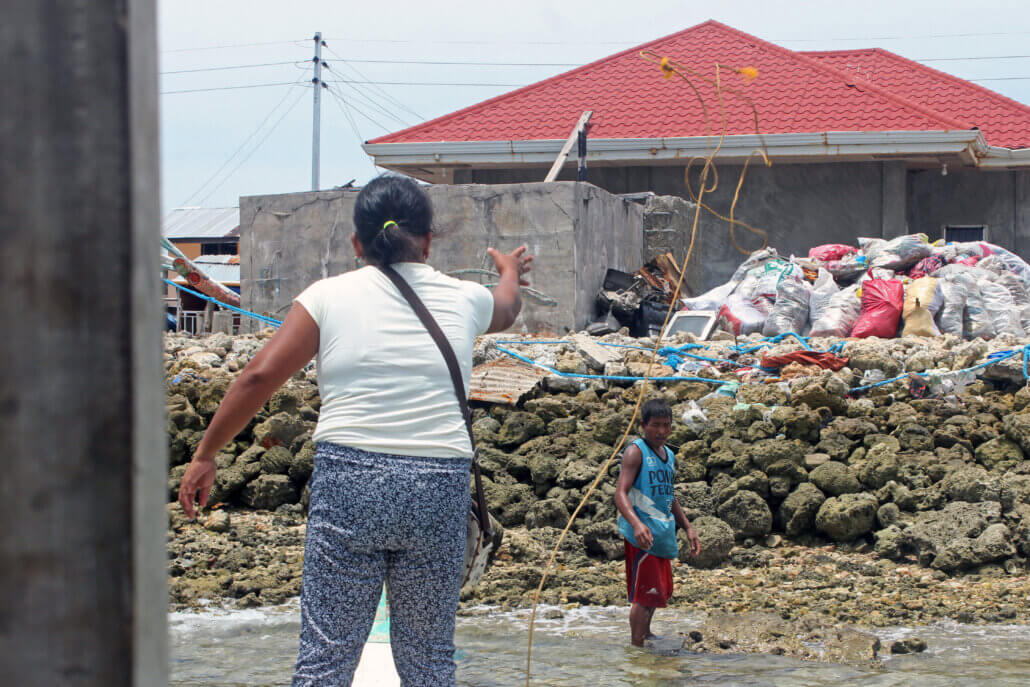
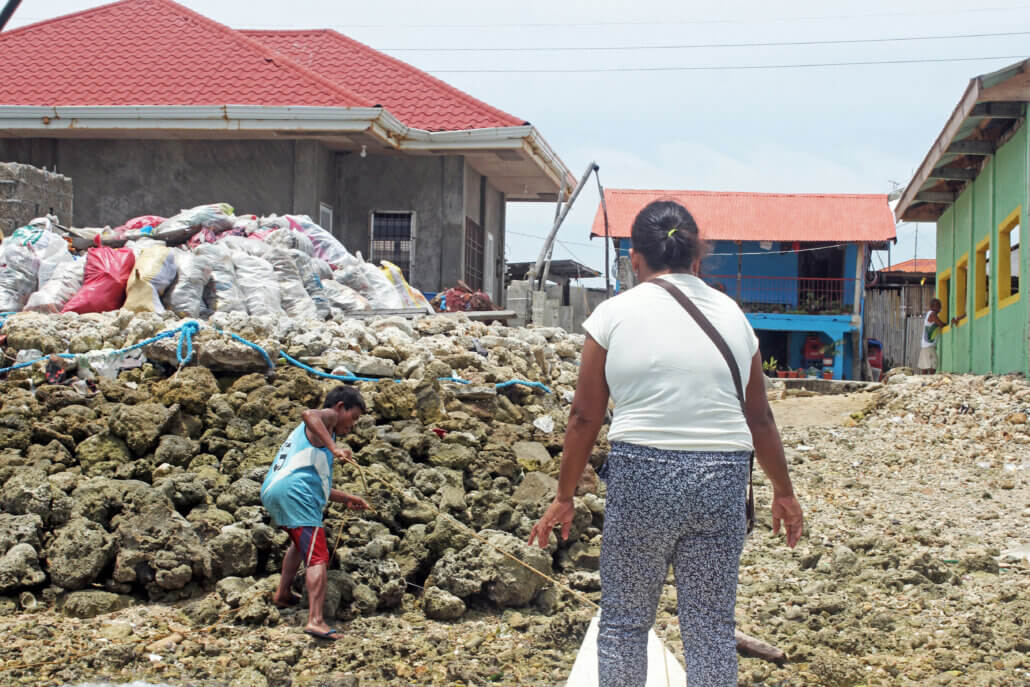
Marichu prepares for docking and throws a rope toward a man who is waiting for the boat to arrive on the Ubay island.
“Sa dihang naagi-an mi og linog, na usab ang panahon. Dayon, nag bagyong Yolanda, mura bag hinay na kaayo ang kuha sa isda gani. Dayon gi usban ni Odette, mao tong diha mi murag na lusbo gani mi. Mura mag ibutang nato og mura ta’g nawad-an ta og panginabuhian ba, sakit kaayo,” Marichu shared during an interview.
“When the 2013 earthquake hit us, the weather seemed to have changed. Then when typhoon Yolanda hit a few months later, our fishermen’s daily catch gradually decreased. Typhoon Odette came and that is when everything got even worse. It seemed like we lost everything in life, and it was too painful for us,”
Despite the day-to-day financial challenges they face, Marichu and her husband continue to keep their promise of not giving up. Currently, their eldest child is in a local college studying Education, while their second child has just started college taking up Maritime courses.
The family owns a boat that they use not only for fishing but also for taking passengers to and from the island; this is a secondary source of income for them. Meanwhile, Marichu works as a Barangay Health Worker on the island with a monthly honorarium of 500 pesos.
“Ang akong bana, ang buntag himoon og gabie, ang gabie himoon og buntag niya, para lang maka support sa among mga anak. Kay among mga anak ma’am bisag ingani mi ang among sitwasyon, maka kaon sa usa ka adlaw og ka tulo, pursigi gani sila sa ilang pag skwela. Unya kato akong ulitawo mo tabang sad sa iyang papa og tahi, managat…. Ang kanang mahibiln sa among balay kanag gamay nako ari, kamao naman sad na moluto ka gi tun-an lage nako, 9 years old, grade 4,” Marichu proudly narrated.
“As a fisherman, my husband’s morning is the night, and the night is his morning. He does that just to support our children because even if we are in this situation – merely having three meals per day – we have hard-working children who are eager to go to school.
For instance, my second child helps his father at work – he sews our fish net, he goes fishing… Our youngest child is usually the one left at home, and he can already cook food. He is nine years old and in the fourth grade,”
Marichu admitted that her family of five continues to experience the struggle to achieve a more stable life, especially in recent years because income through fishing has been unsteady and two of the children have started tertiary education. On the brighter side, this struggle is also the thing that motivates them to do better and bigger. Unfortunately, their struggle intensified in December 2021 after Super Typhoon Odette washed out their home and destroyed their fishing equipment.
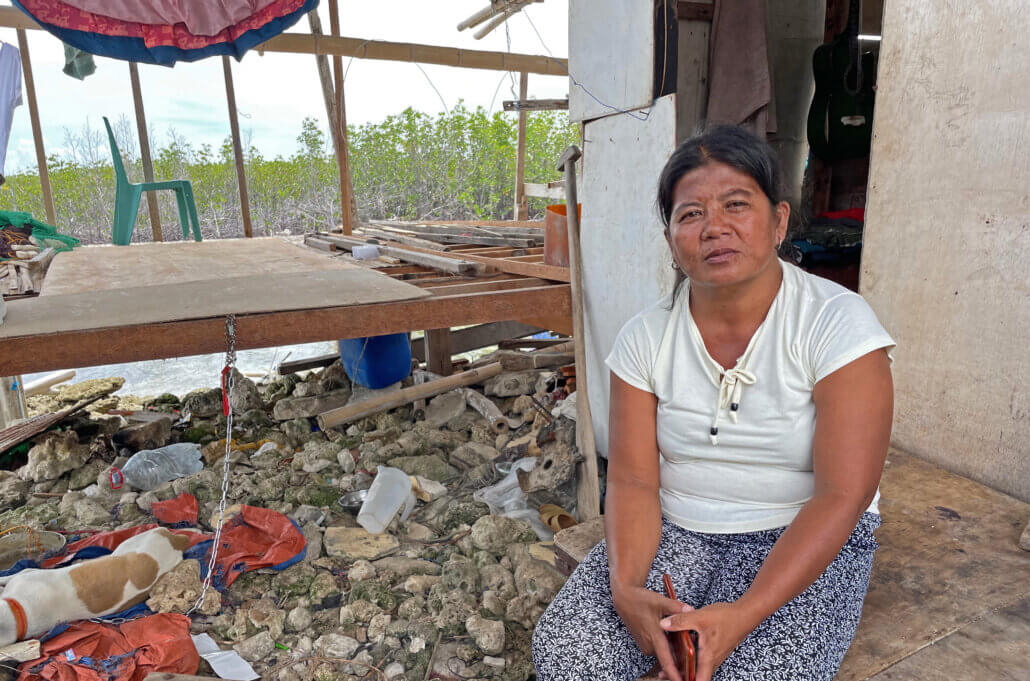
Marichu sits in the doorway of their makeshift house while narrating the horrors her family and the rest of the island community experienced during the onslaught of Typhoon Odette
The town of Tubigon has six islands surrounding it. Due to the lack of appropriate sea transport facilities and time constraints, the local government officials were not able to evacuate all of the Ubay Island residents before the strong winds and rains arrived. Fifteen families remained on the island during the typhoon including Marichu’s.
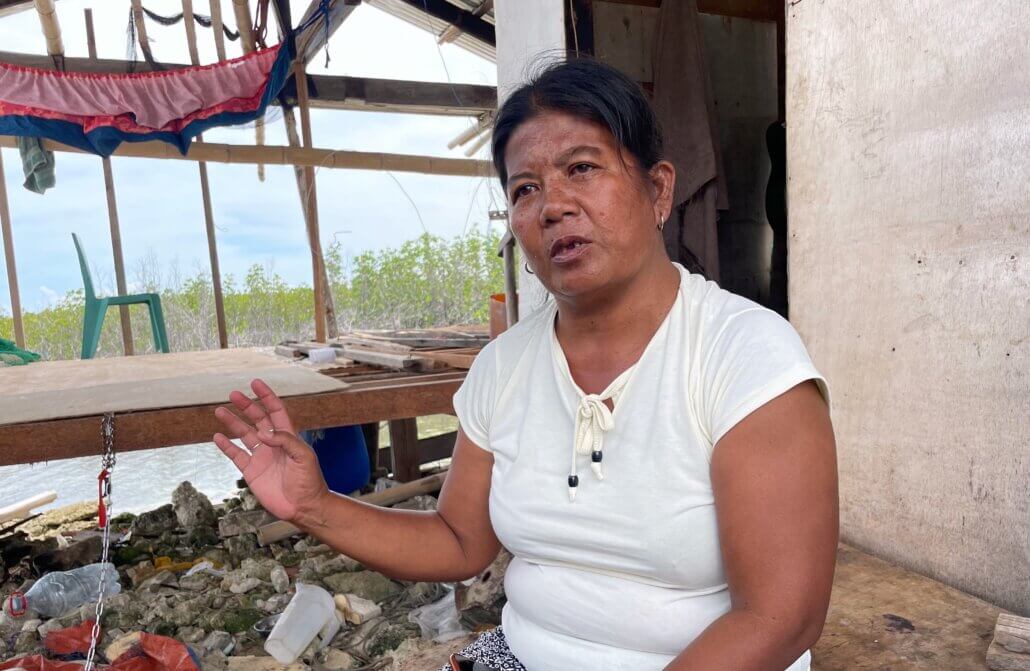
Marichu got emotional as she recalled the unfortunate events that happened on the island during the typhoon. She narrated how the community witnessed first-hand the rapid destruction of the islanders’ primary assets – the households and the livelihood. Marichu also shared how the entire community of Ubay Island mourned for the two most vulnerable members of the community who lost their lives during the typhoon – a newborn baby and an old woman.
“Sakit kaayo paminawon ba, nga ang among bay ug panginabuhian hurot tanan. Ang nahibilin na lang namo ang among pamilya, maong nagpasalamat sad ko sa GInoo ba nga wa mi hutdan sa among mga anak. Gibilin mi, ang gikuha niya ang panginabuhian ug among balay. Pero salamt jud kaayp sa Ginoo sad kay kami buo pa mi. Hinuon ang panginabuhian ug ang bay, sa inanay mabalik man. Pero sakit lang sad paminawon ba,” Marichu said.
“It is painful to think that our home and livelihood got destroyed [due to the typhoon]. What was left of us is our family. I am thankful to God that we did not lose anyone from the family. Our house and livelihood got taken away, but thankfully our family is still complete. We can bring back our house and livelihood slowly anyway. But it was still painful [to lose our house and livelihood,”
The arrival of the Action Against Hunger team to the island a few months after the typhoon was considered a blessing to the island. Marichu, along with the other residents of the island of Ubay, received post-calamity aid from the ECHO-funded project. Cash assistance for livelihood and food is the primary aid intervention for the residents of the island. They also received water, sanitation and hygiene kits.
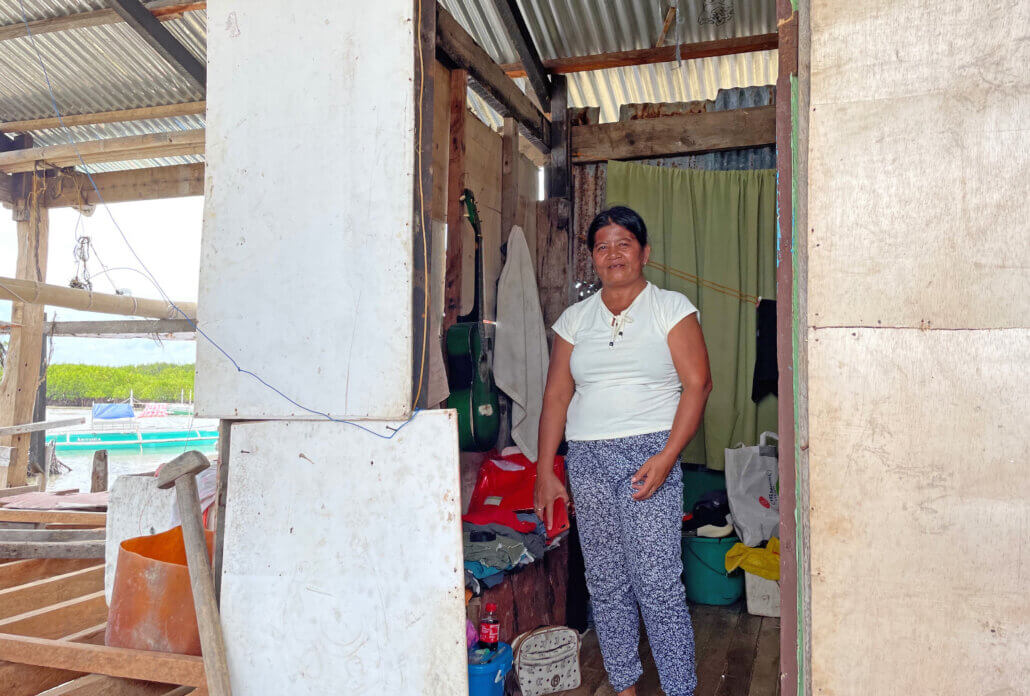
Standing in front of their temporary house, Marichu shows off the new fish net they bought using the ECHO livelihood assistance
All of the families on the island benefited from various aid programs coordinated by the Action Against Hunger team. More than 20 families were able to buy new fishing equipment that helped in their livelihood recovery, and more than 40 families were able to buy food supplies for daily consumption.
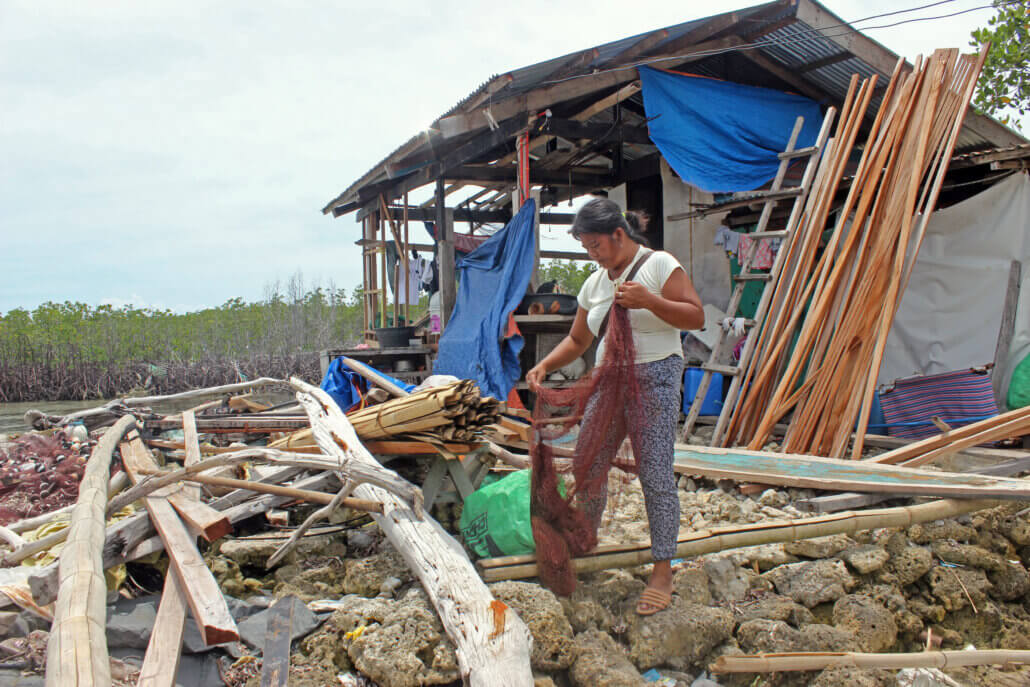
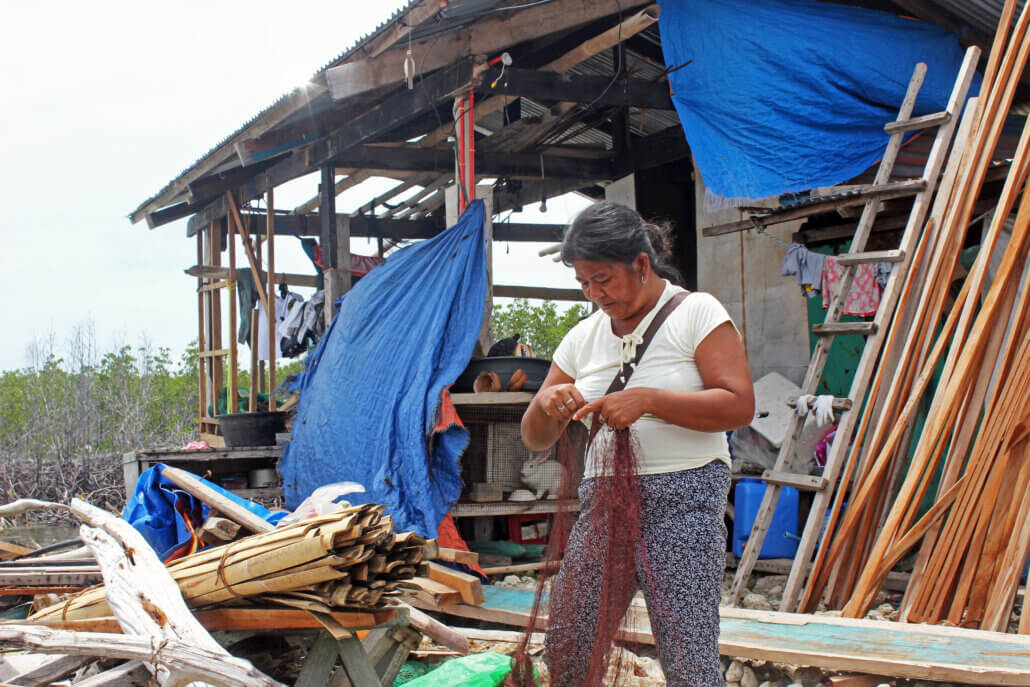
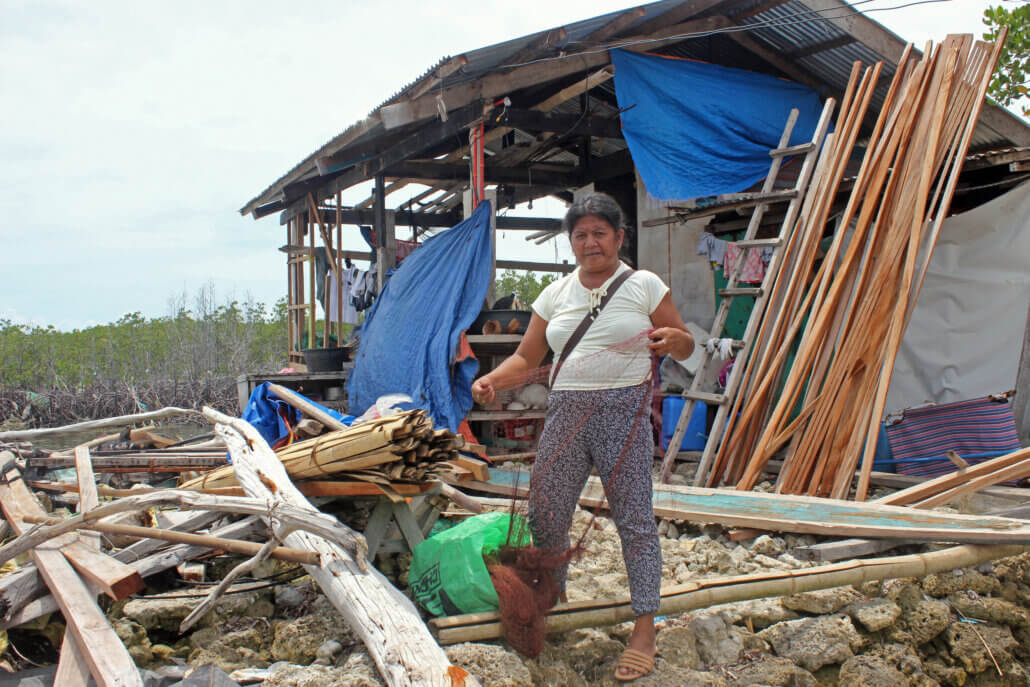
Standing in front of their temporary house, Marichu shows off the new fish net they bought using the livelihood assistance from the
The residents of Ubay Island mention their gratitude for all the help they received in Typhoon Odette’s aftermath. Marichu and her husband thought it would take them a long time to recover, but thanks to donations from charity organizations, especially Action Against Hunger, according to them it only took a few months to go back to fishing. It’s a long way to go, but they’re slowly getting back on their feet.
“Ipagawas lang nako no, daghan jud kaayo ko og pasalamat ninyo, sa Action Against Hunger, sa ECHO. Dako kaayo og nakatabang sa among panginabuhian. Nga ang among pukot nga gamay na pun-an pa gyud tungod sa hibanag Action Against Hunger. Thank you kaayo. Og sa akoa lang nga bahin ma’am, kung nagkinahanglan mo nako, willing ko, magpa gamit ko para makatabang pod,” Marichu’s ending statement during the interview.
“I just want to express a huge thank you to Action Against Hunger and ECHO. They helped us a lot in the revival of our livelihood. For instance, we now have a bigger fish net because of the cash assistance we received. Thank you very much. And on my part, if ever the organization would need anything from me, I am willing to help and be a volunteer, so I can also help in return,”
The Immediate and Comprehensive Response for Communities Affected by Typhoon Rai (Odette) is funded by the European Civil Protection and Humanitarian Aid Operations (ECHO) and jointly implemented by CARE Philippines, ACCORD Incorporated, Action Against Hunger Philippines, National Rural Women Coalition (PKKK) and Plan International in Dinagat Islands, Palawan, Southern Leyte, Bohol, Negros Occidental, and Cebu, in the Philippines.


